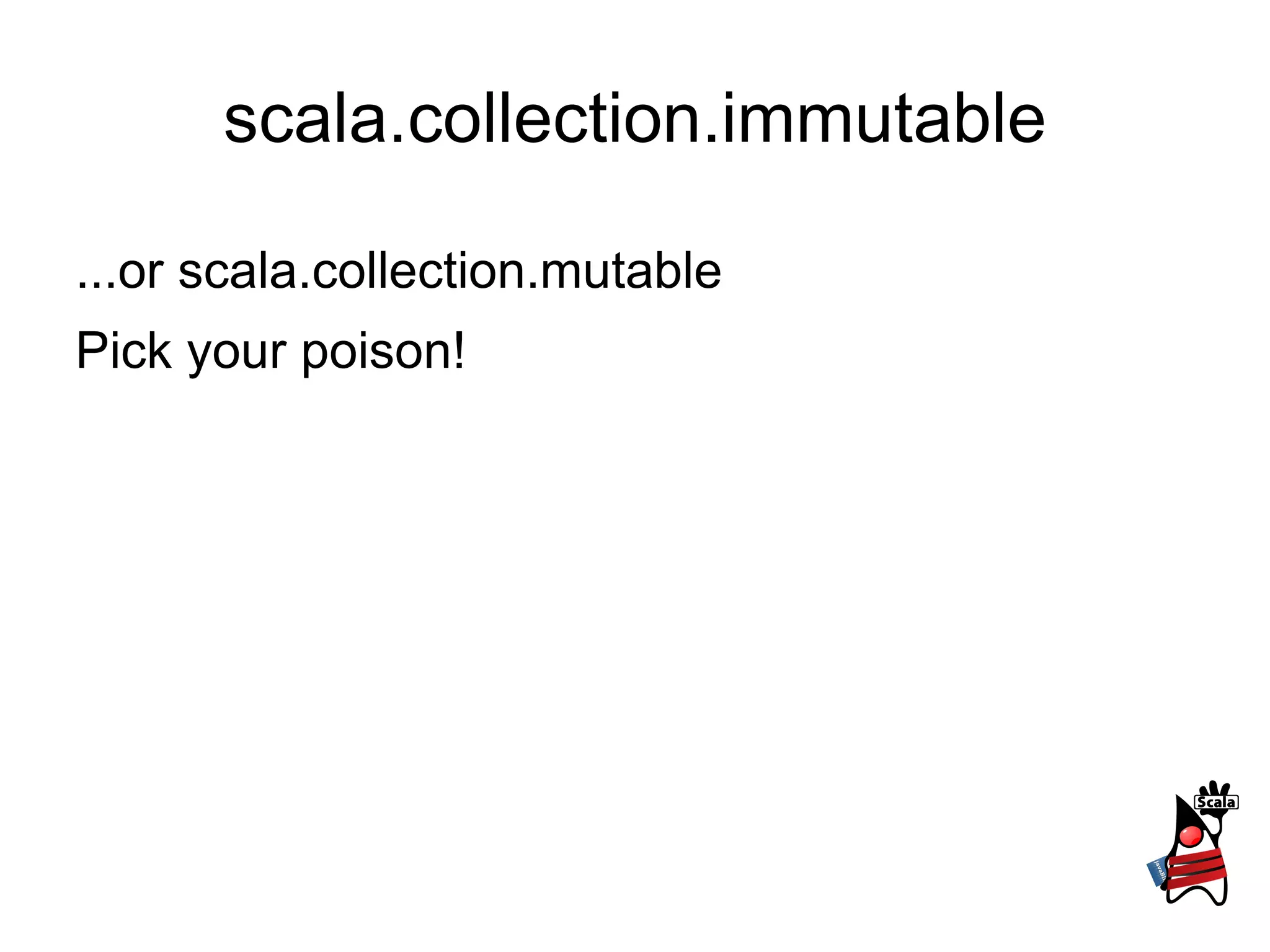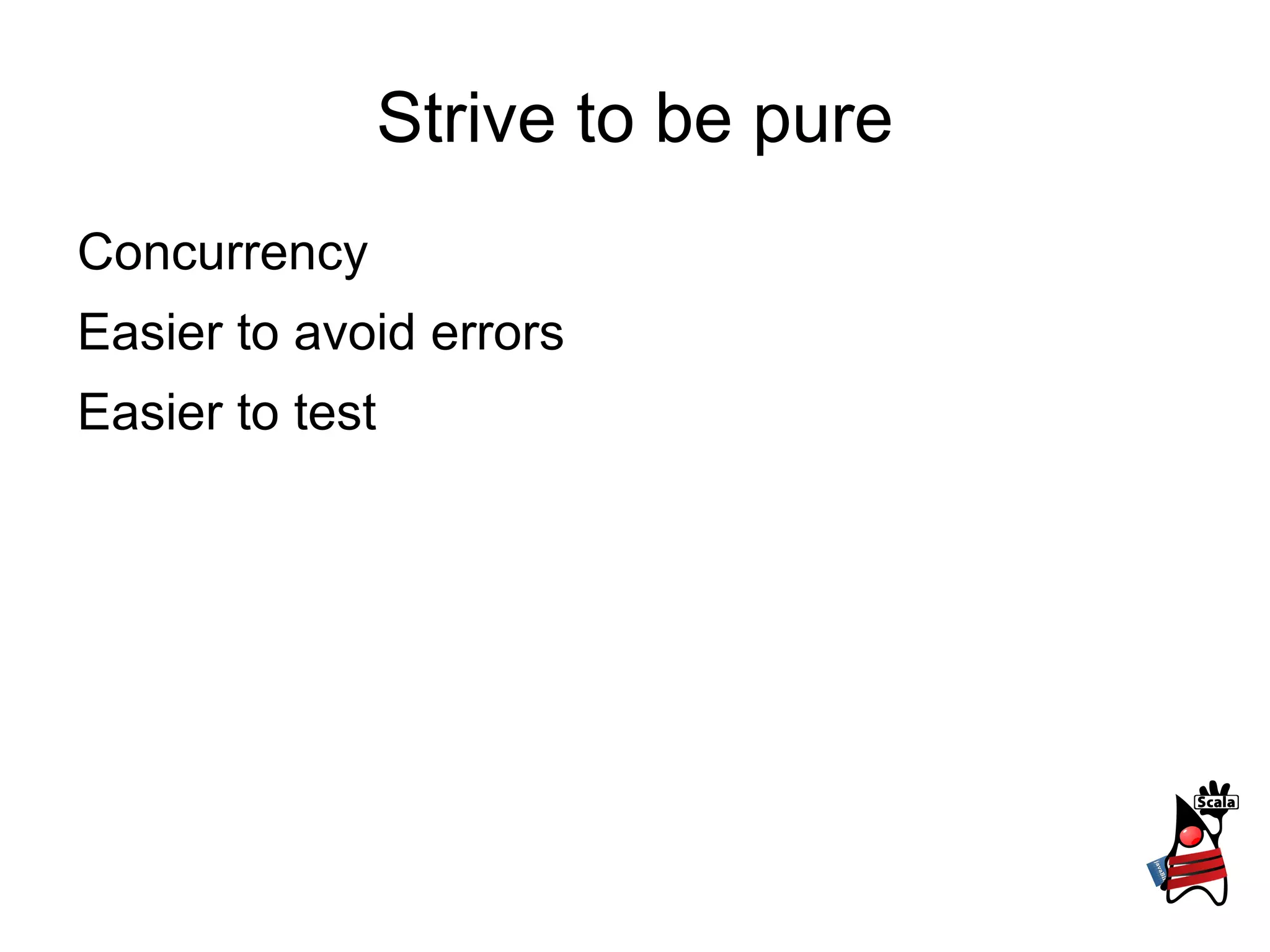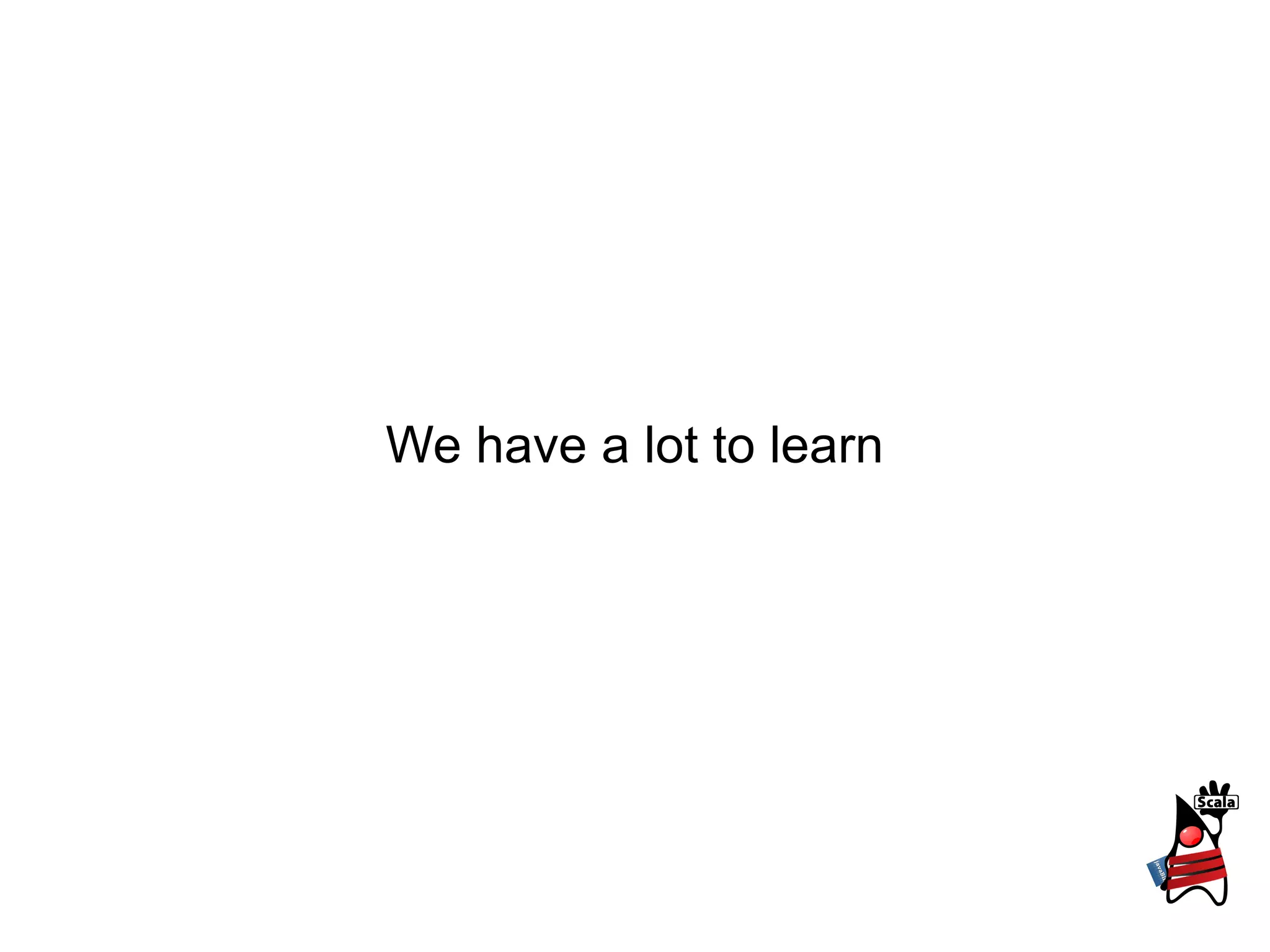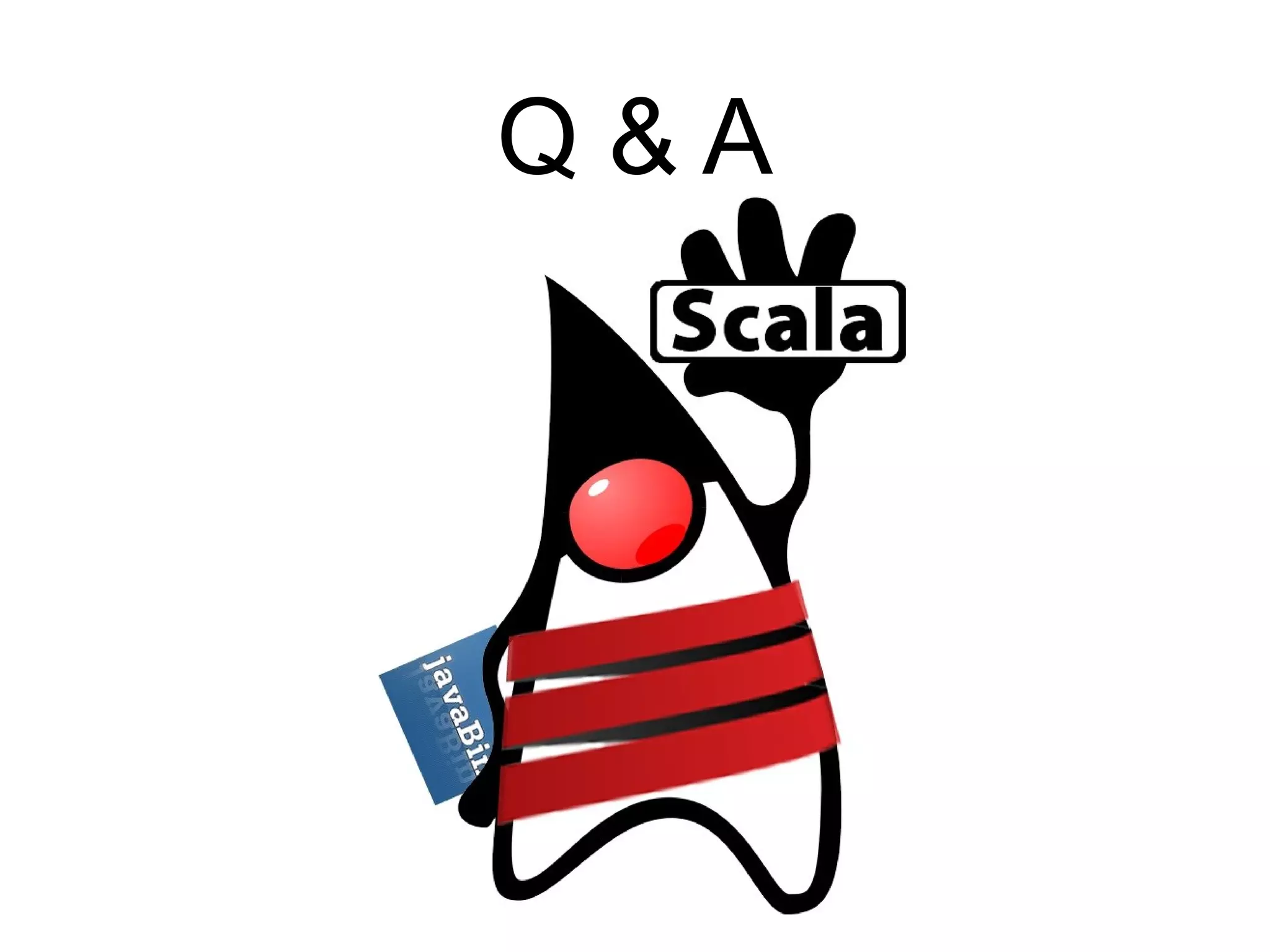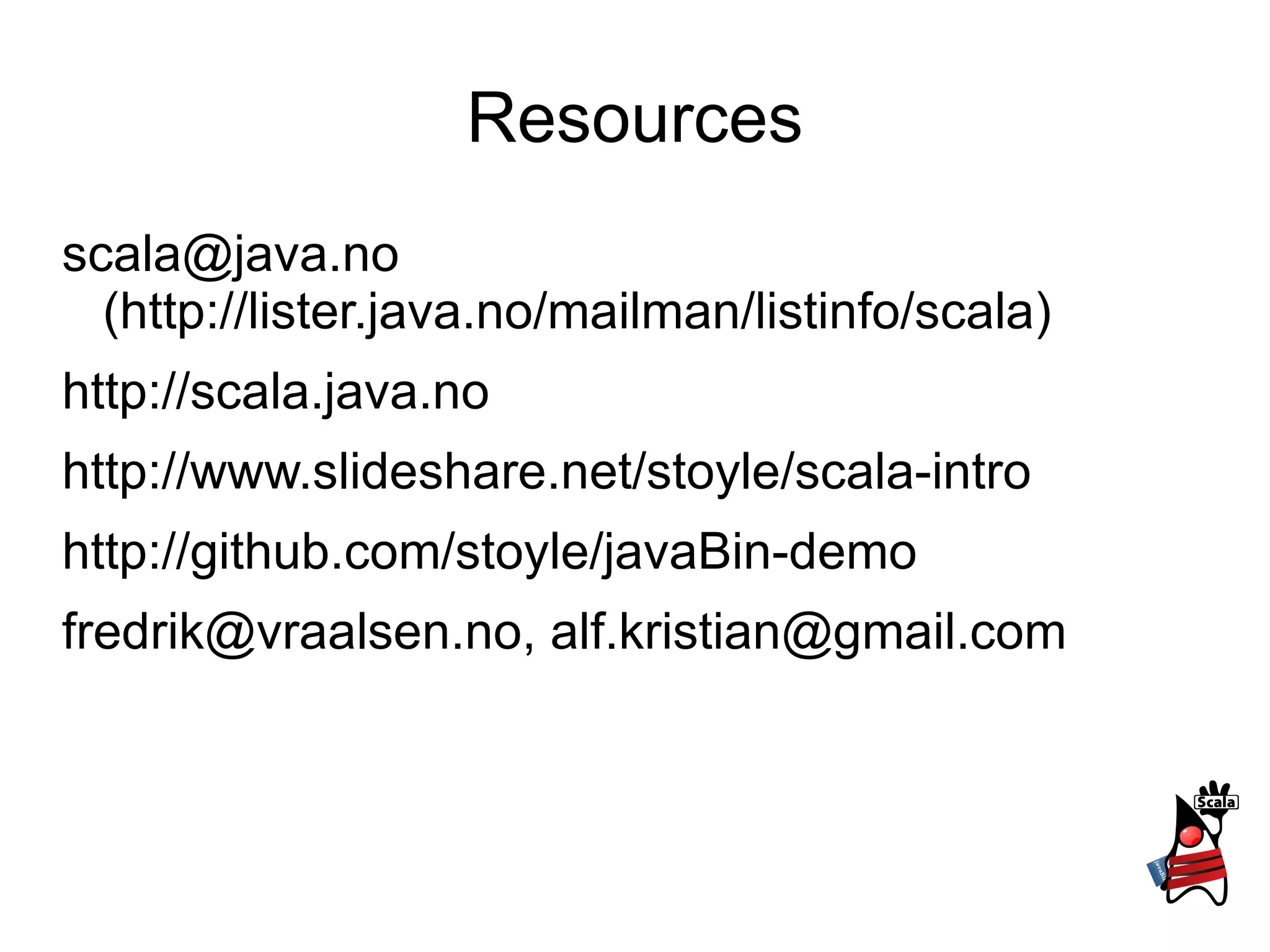The document discusses Scala as a potential replacement for Java on the JVM. It provides quotes from several influential Java developers who express their view that Scala is the most capable replacement for Java currently available on the JVM, and the momentum behind Scala is growing. The document also briefly outlines an agenda for introducing Scala, covering basic syntax, patterns, functions, classes and traits.
![If I were to pick a language to use on the JVM today other than Java, it would be Scala. – James Gosling, creator of Java http://www.adam-bien.com/roller/abien/entry/java_net_javaone_which_programming Scala, it must be stated, is the current heir apparent to the Java throne. No other language on the JVM seems as capable of being a "replacement for Java" as Scala, and the momentum behind Scala is now unquestionable. – Charlies Nutter, JRuby lead http://blog.headius.com/2009/04/future-part-one.html My tip though for the long term replacement of javac is Scala. I'm very impressed with it! I can honestly say if someone had shown me the Programming in Scala book […] back in 2003 I'd probably have never created Groovy. – James Strachan, creator of Groovy http://macstrac.blogspot.com/2009/04/scala-as-long-term-replacement-for.html](https://image.slidesharecdn.com/scala-introduction-100423050631-phpapp01/75/Scala-introduction-1-2048.jpg)
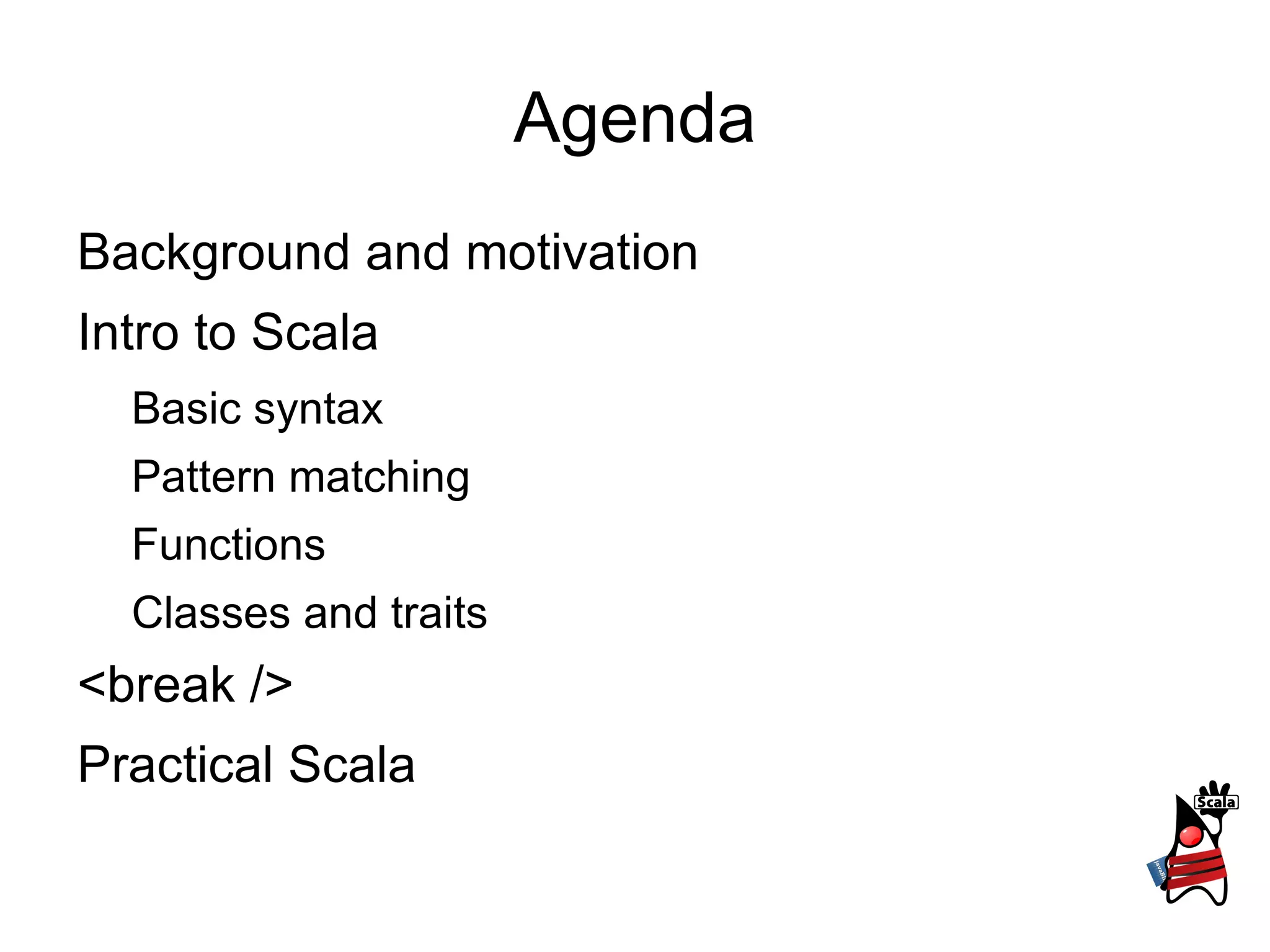

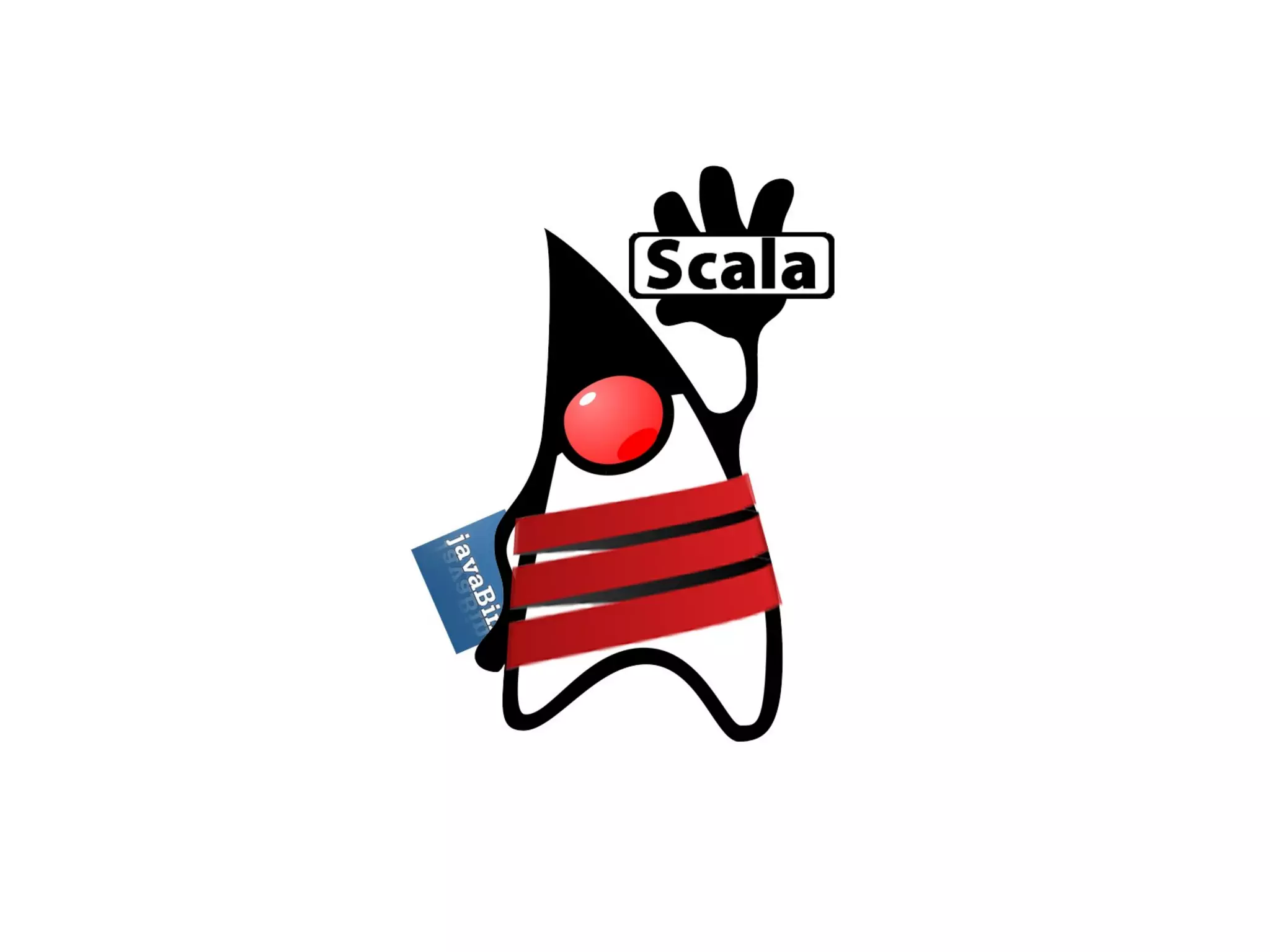
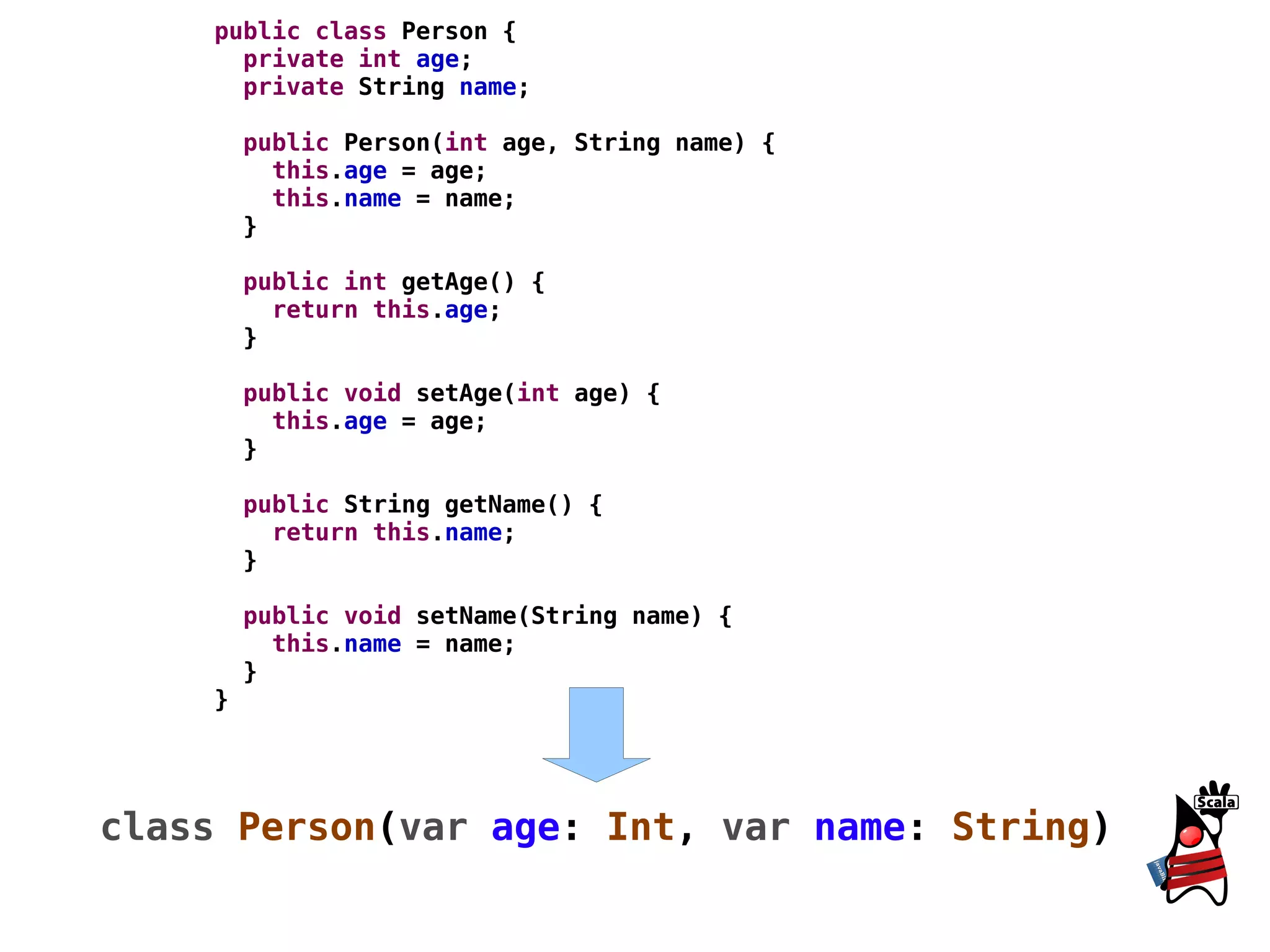
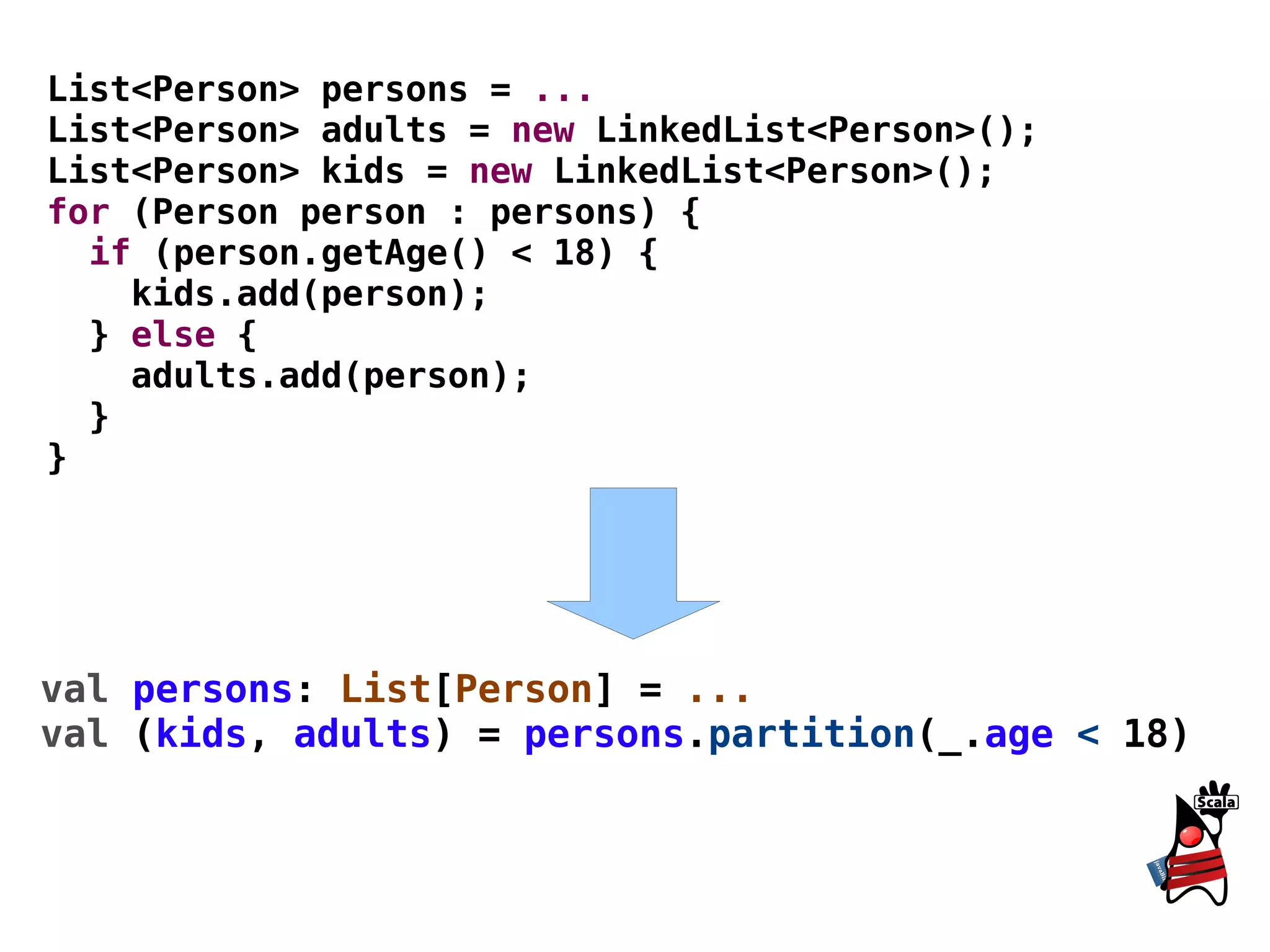
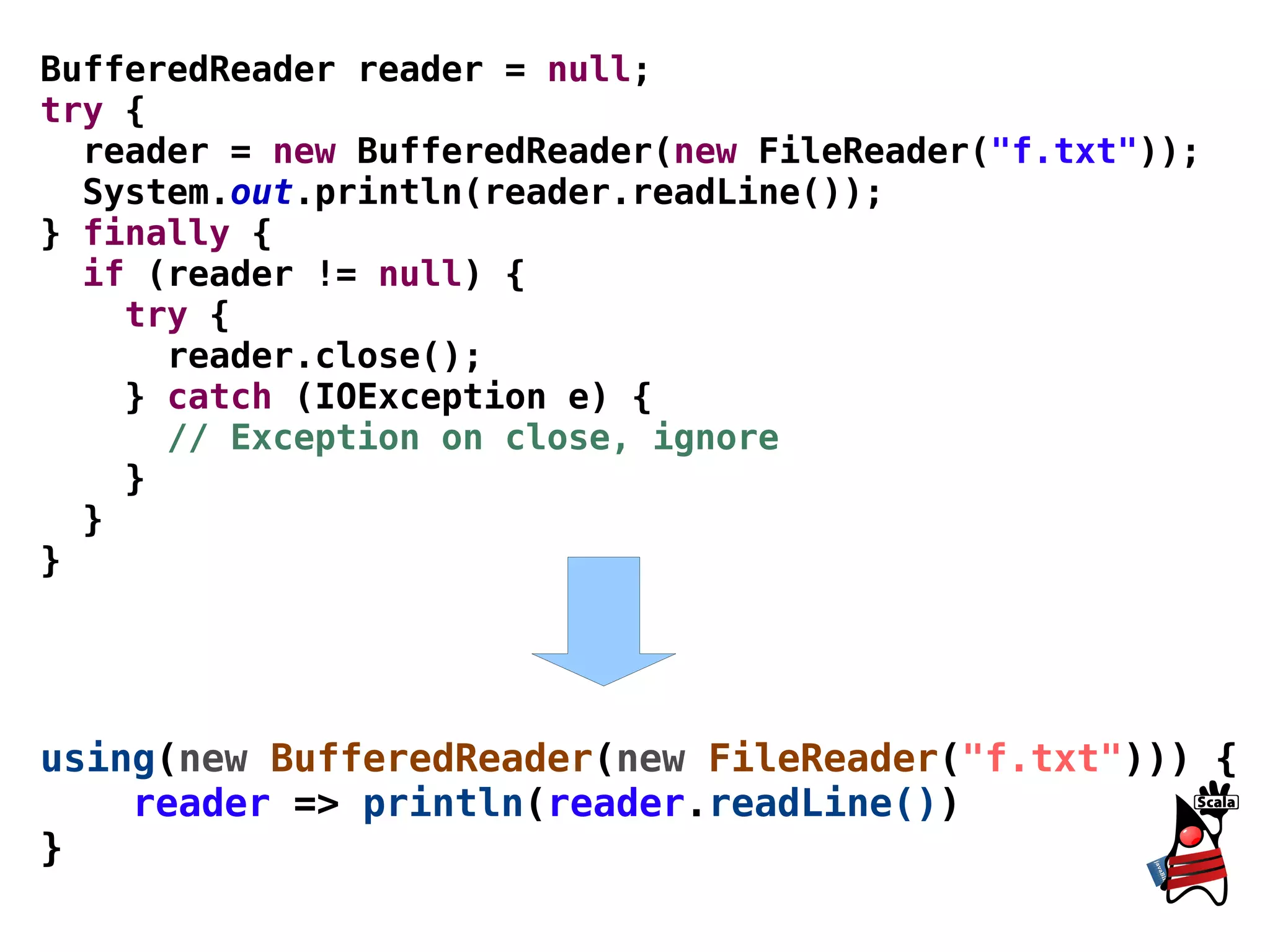
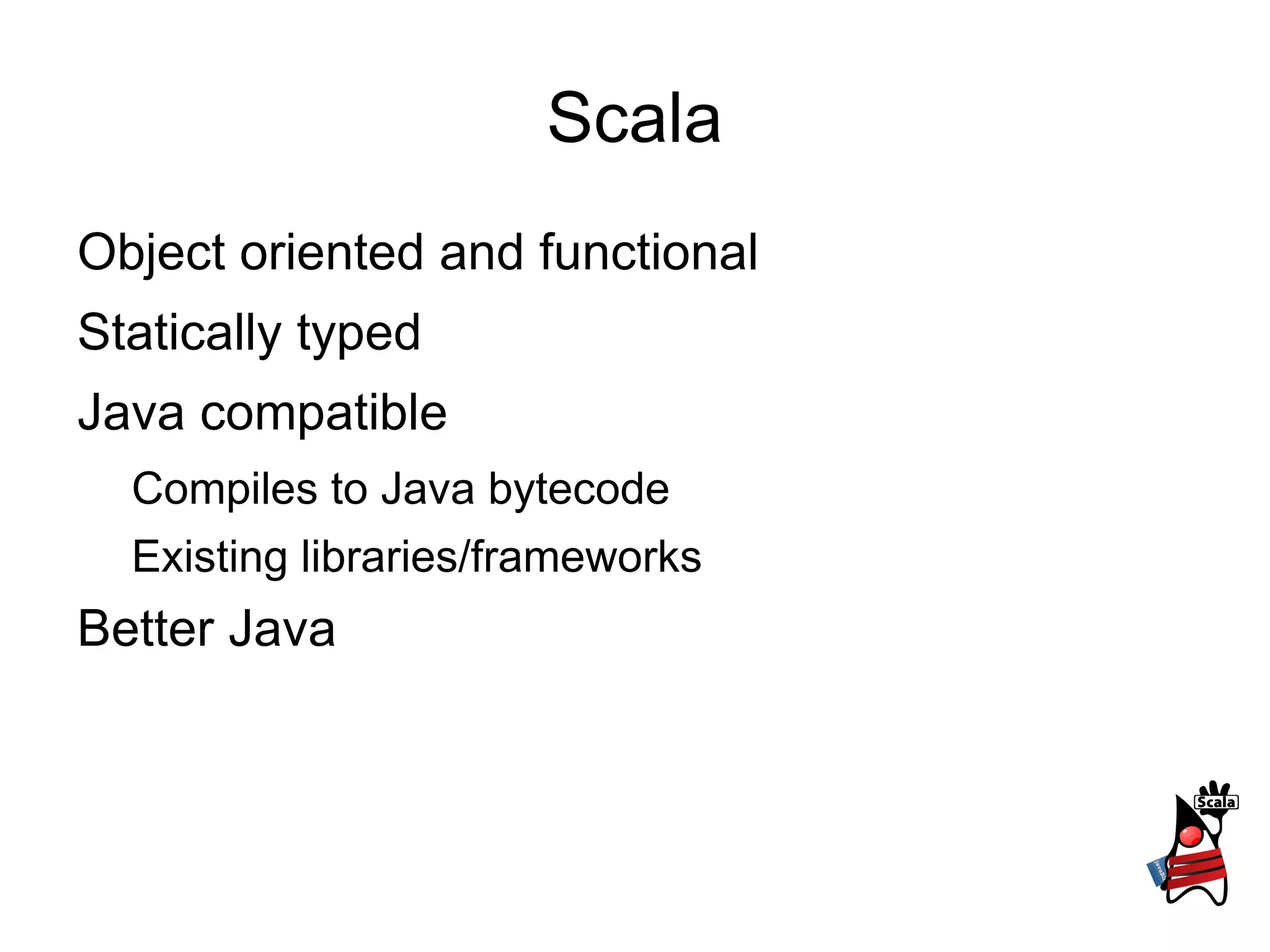
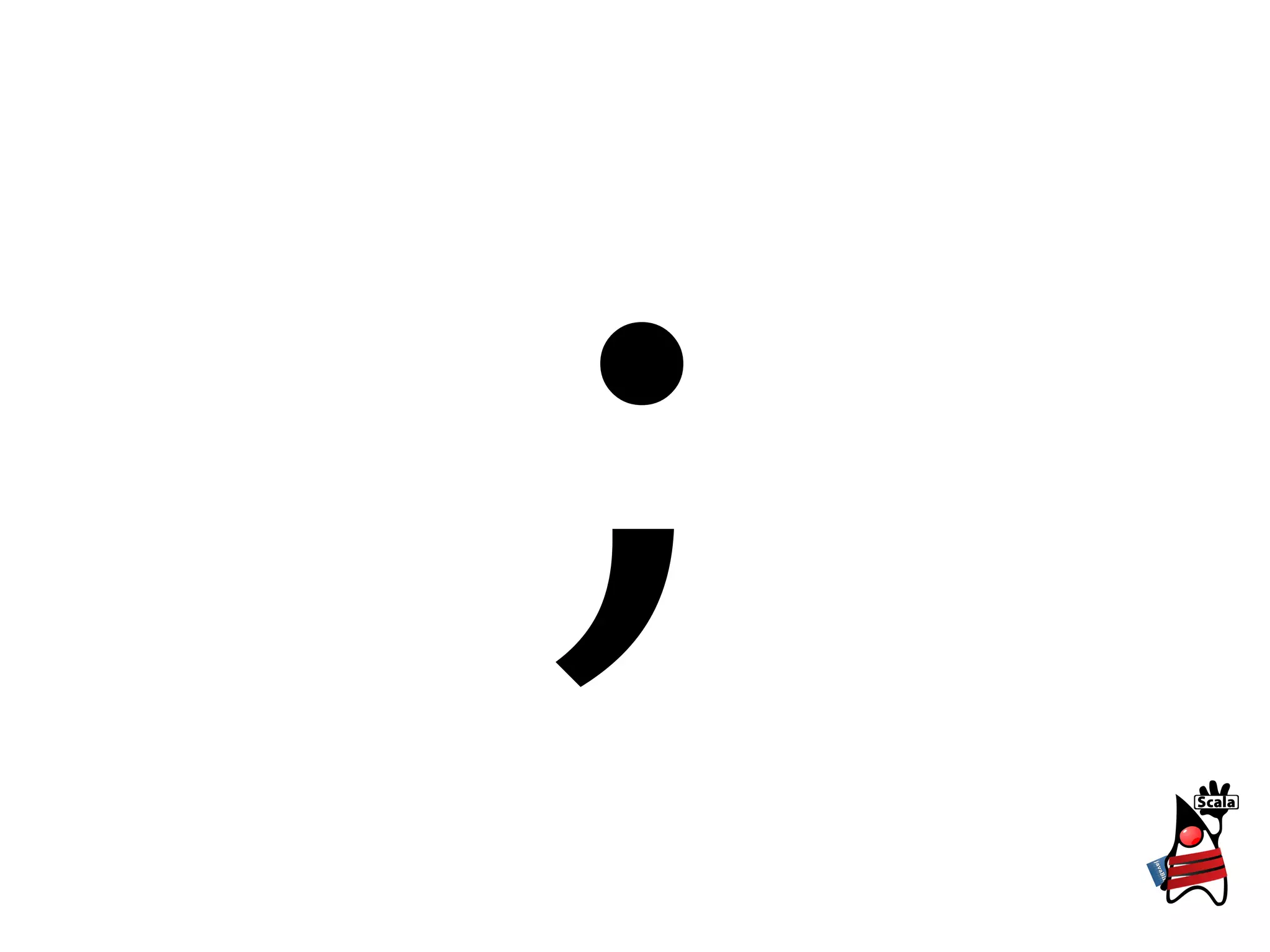
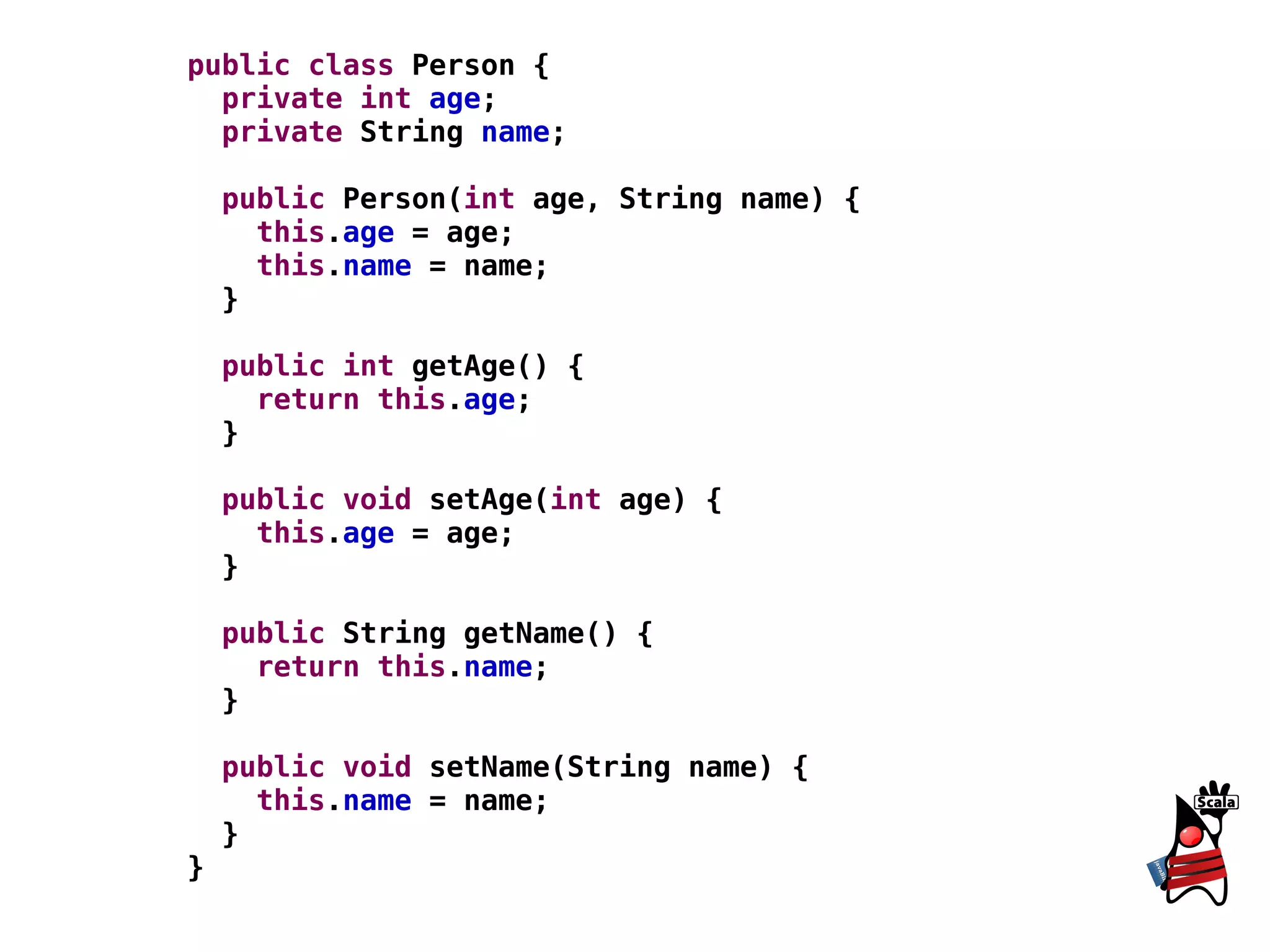
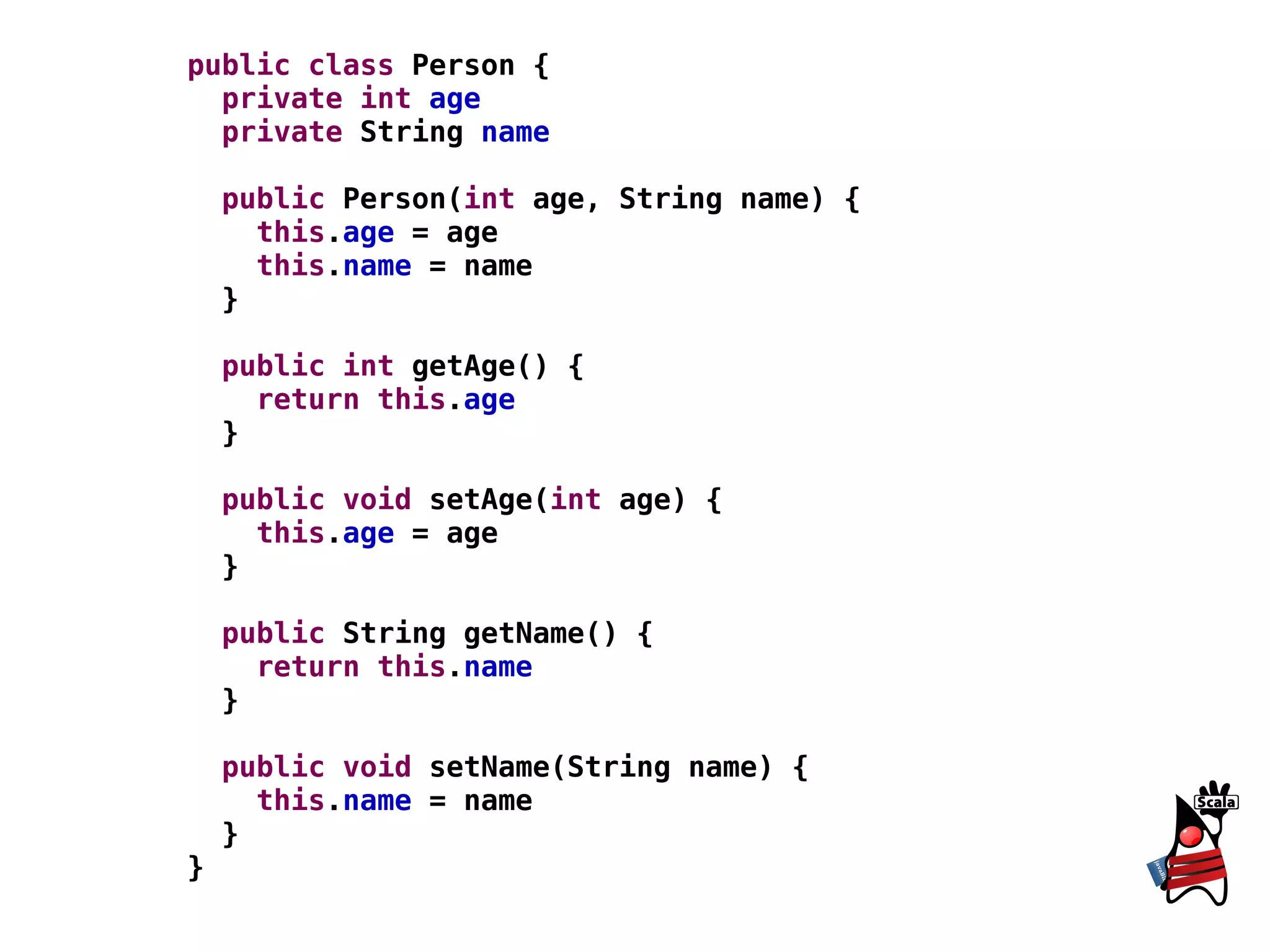
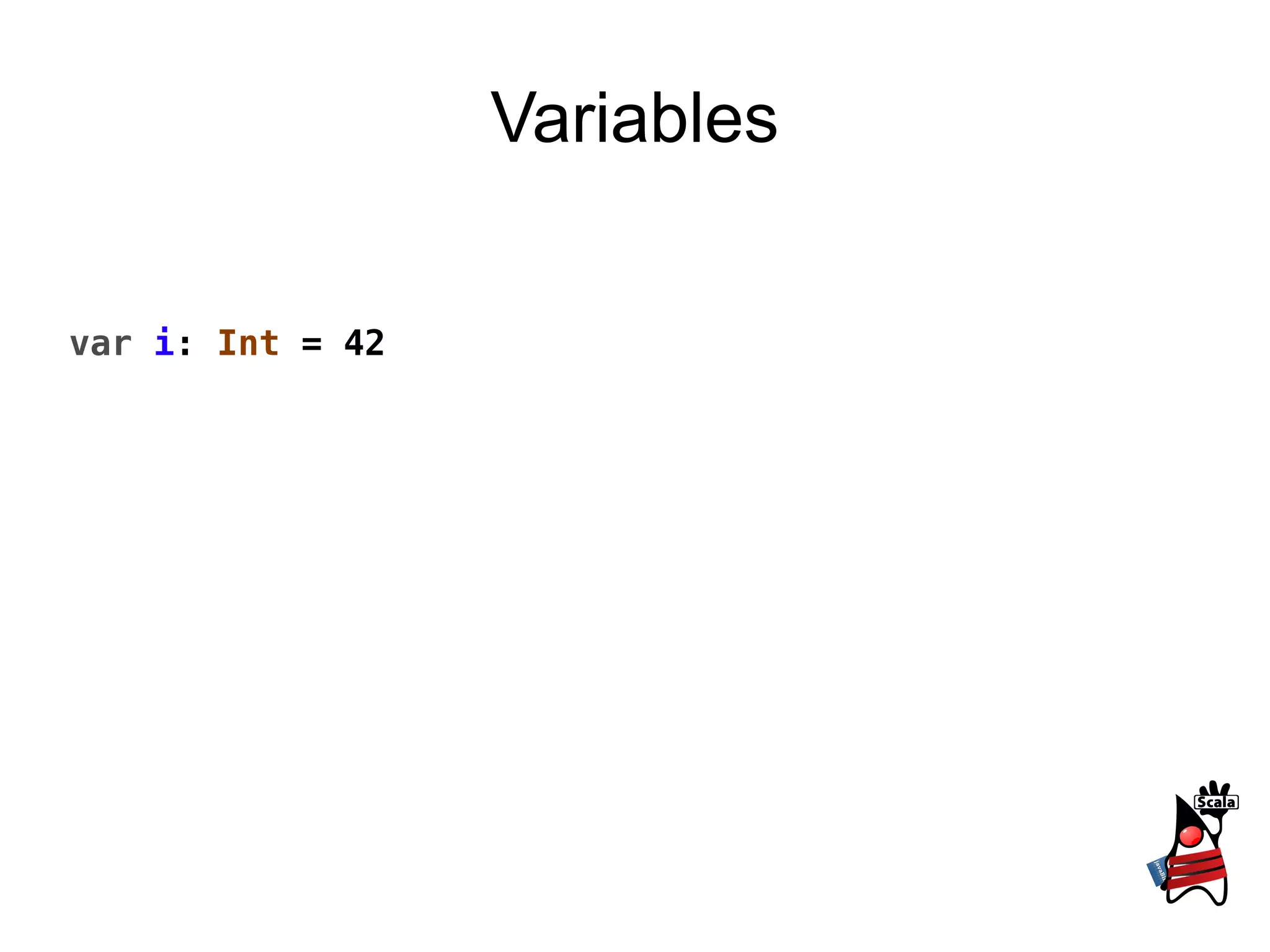
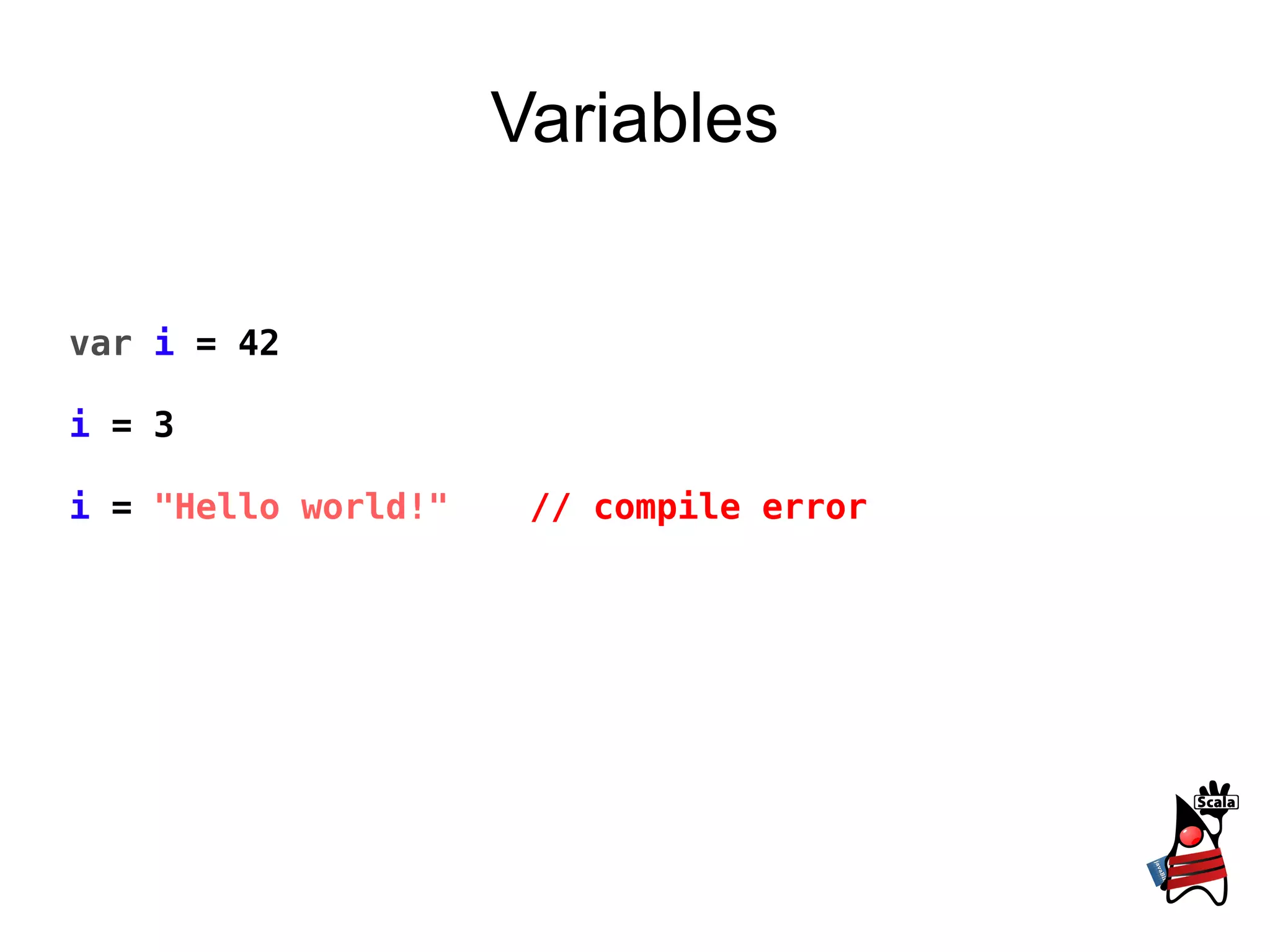
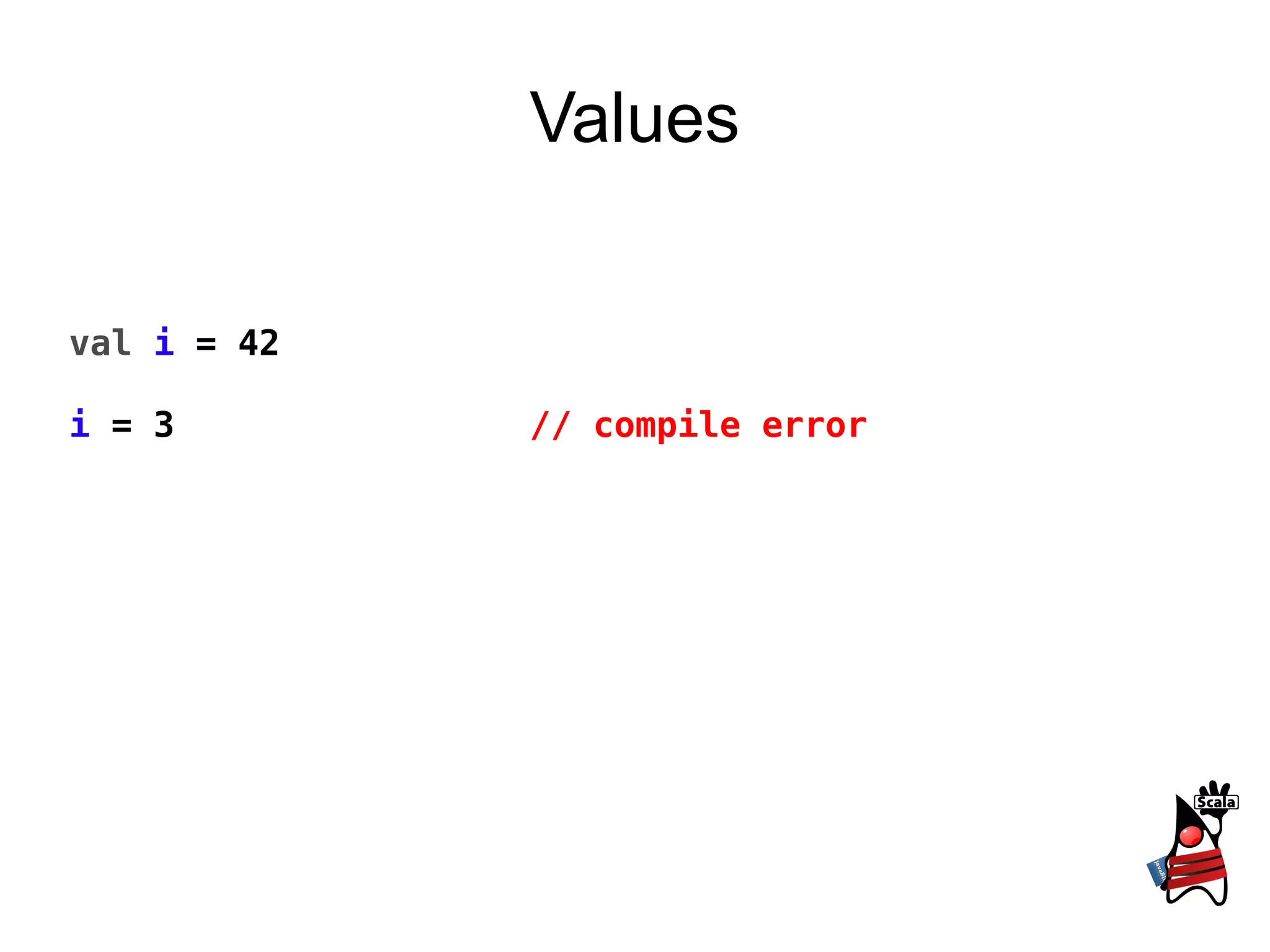
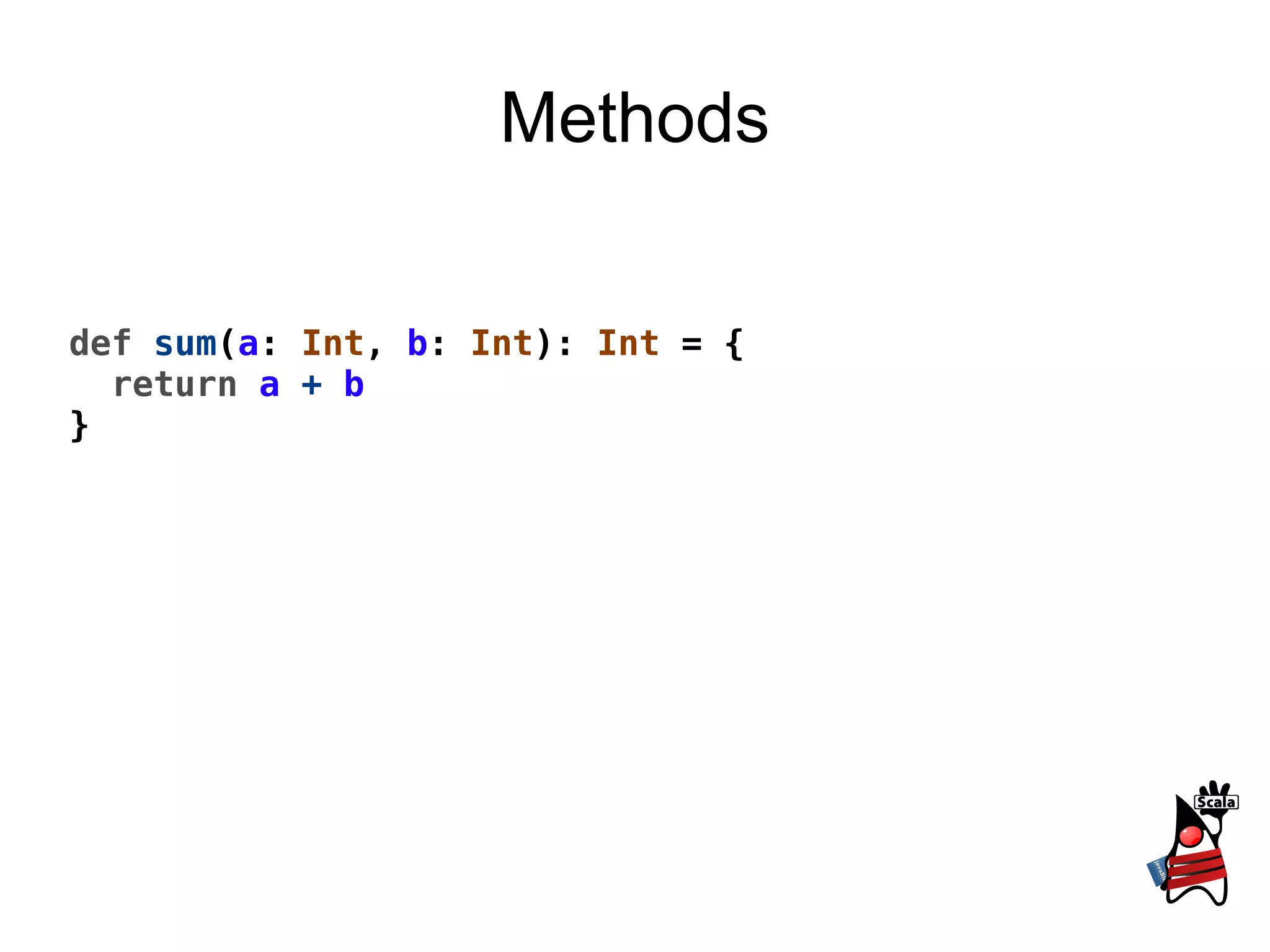
![List<Person> persons = ... List<Person> adults = new LinkedList<Person>(); List<Person> kids = new LinkedList<Person>(); for (Person person : persons) { if (person.getAge() < 18) { kids.add(person); } else { adults.add(person); } } val persons : List [ Person ] = ... val ( kids , adults ) = persons . partition (_. age < 18)](https://image.slidesharecdn.com/scala-introduction-100423050631-phpapp01/75/Scala-introduction-16-2048.jpg)
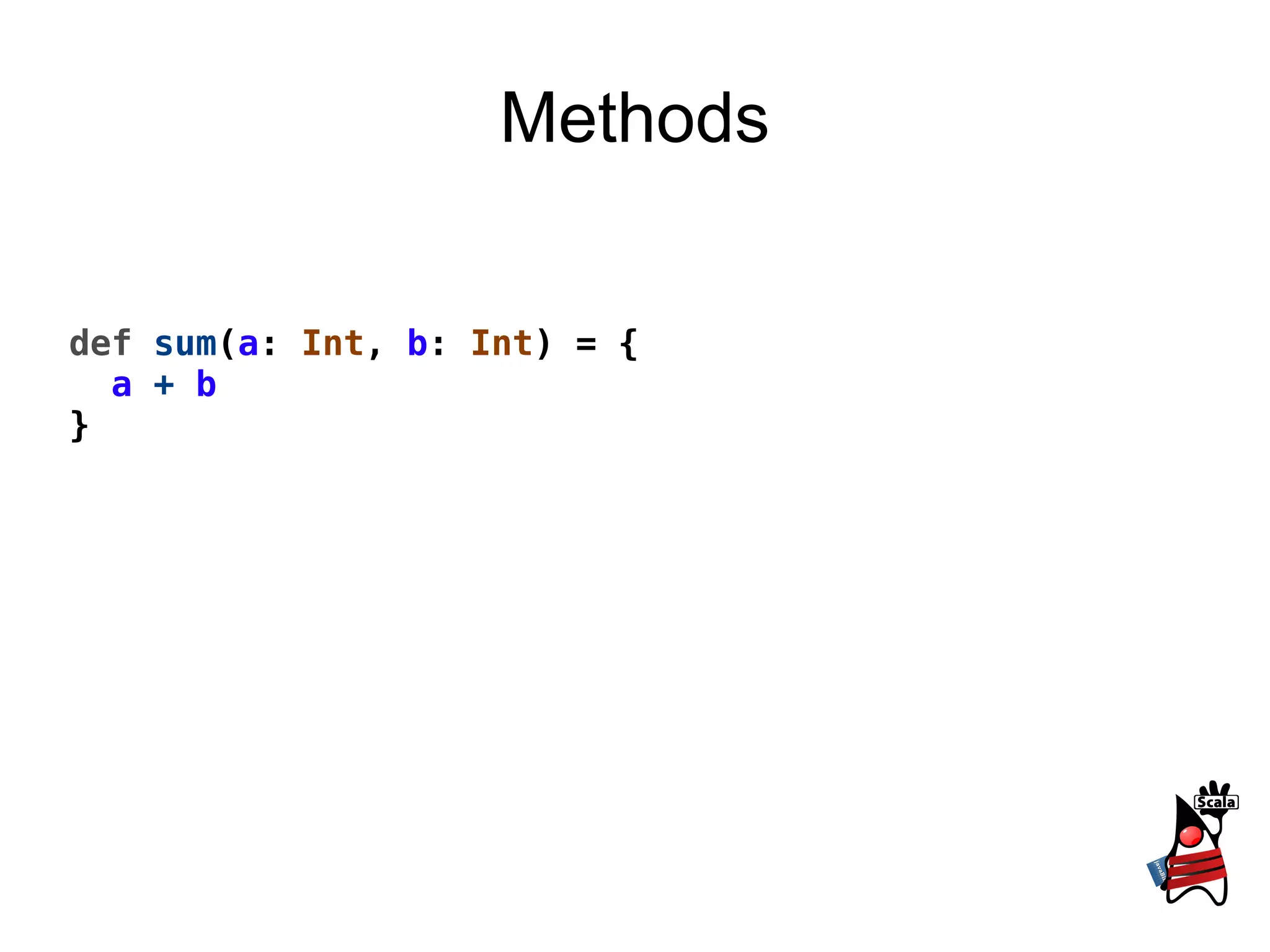
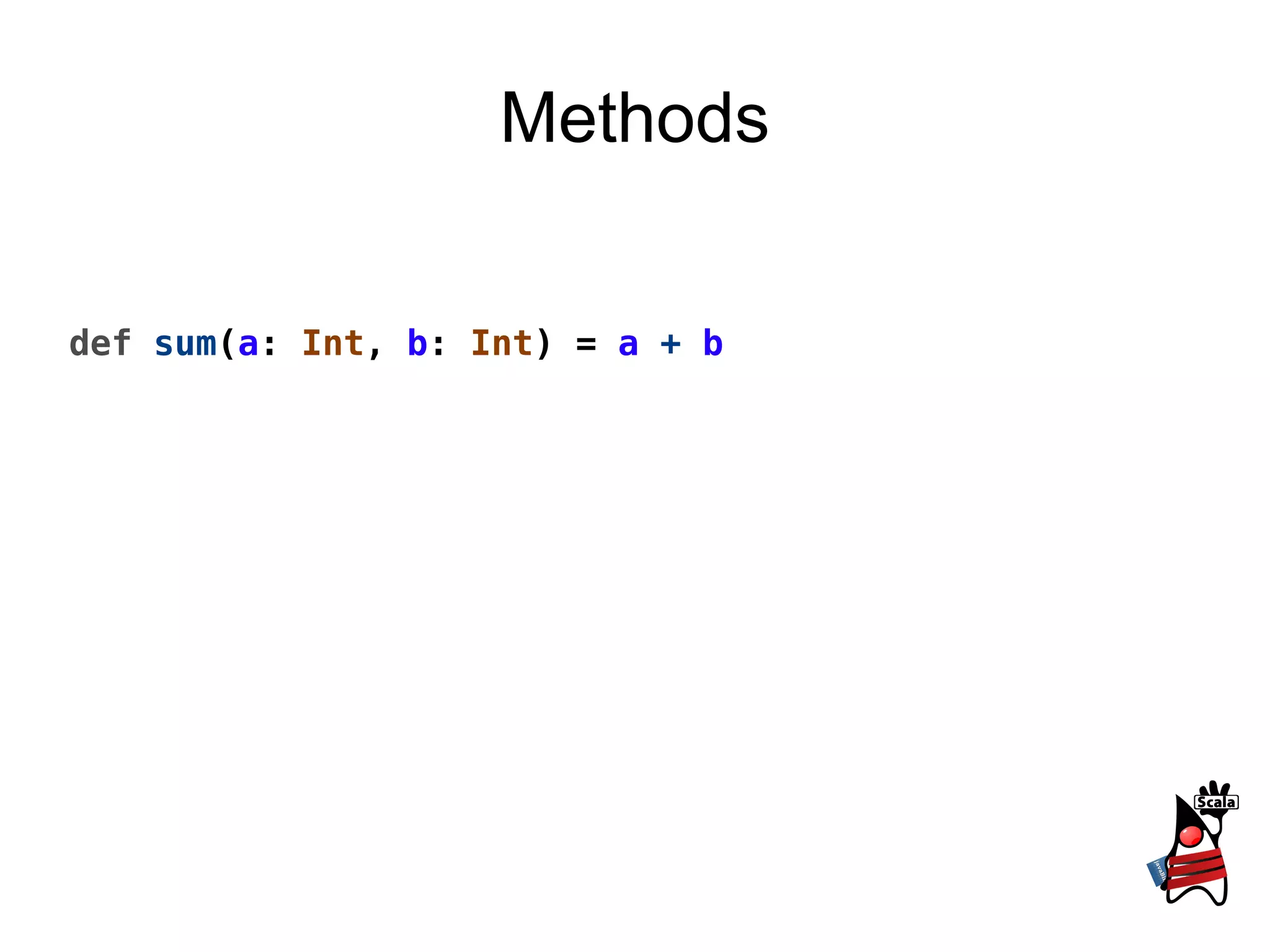
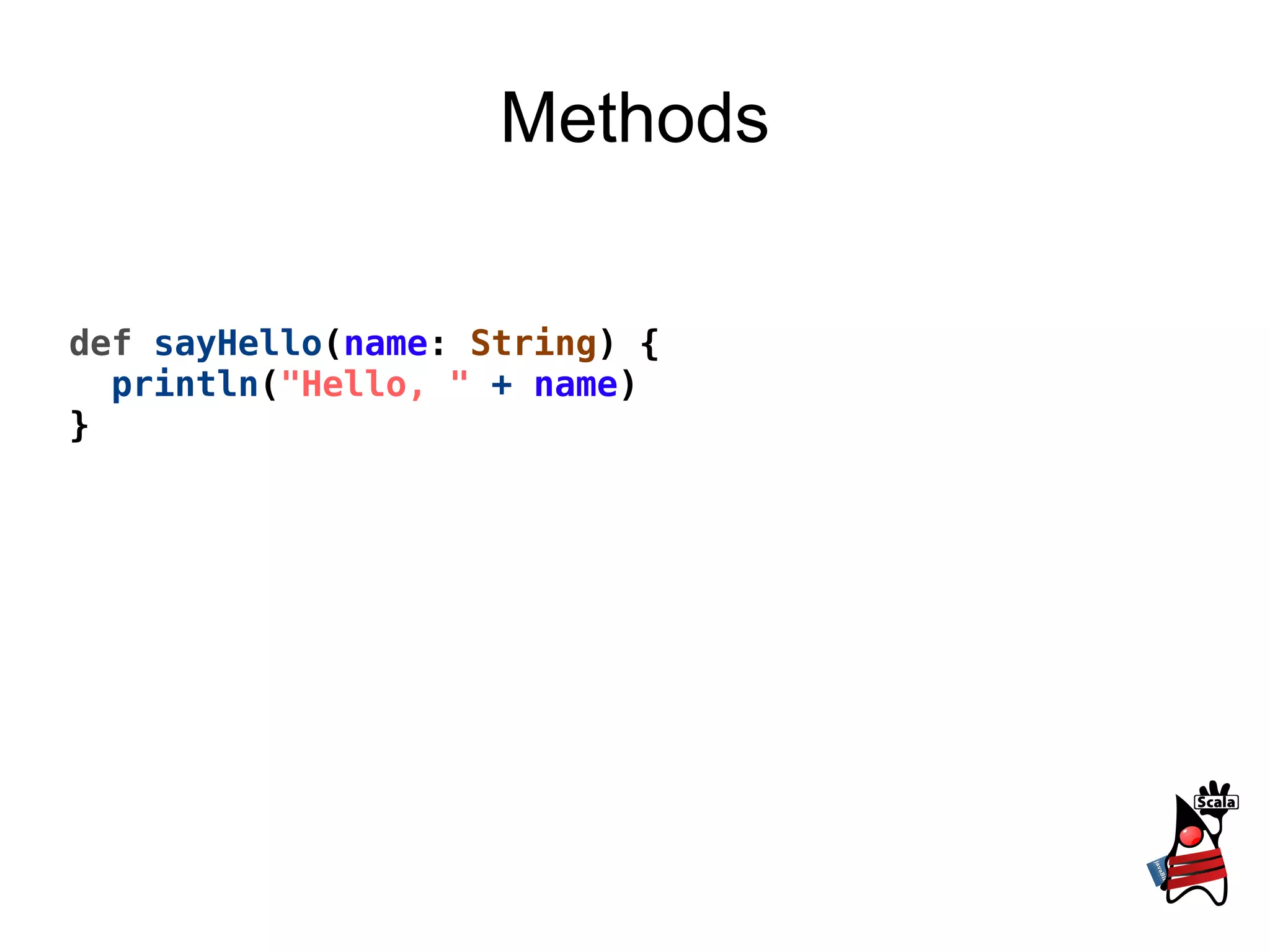
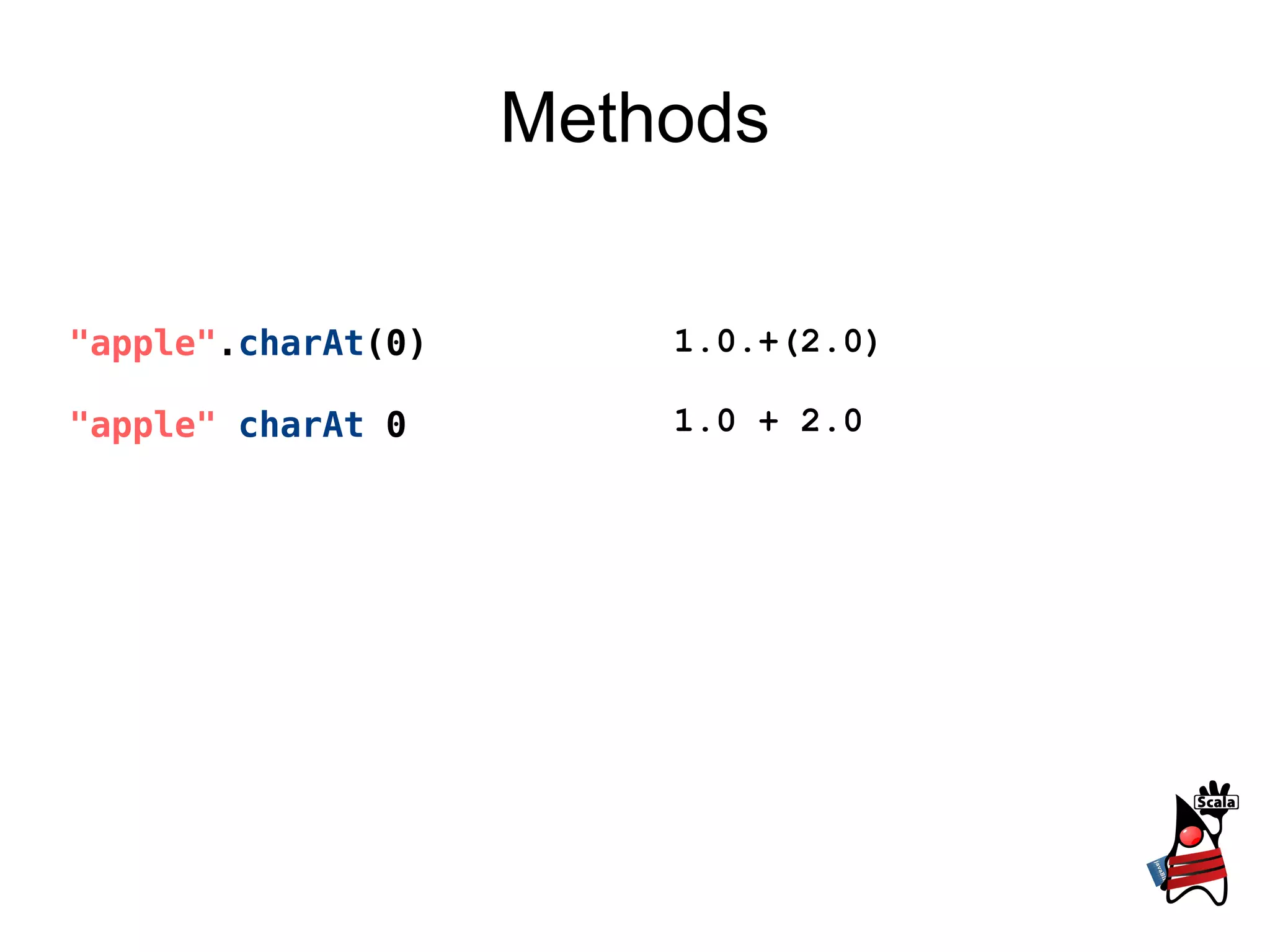
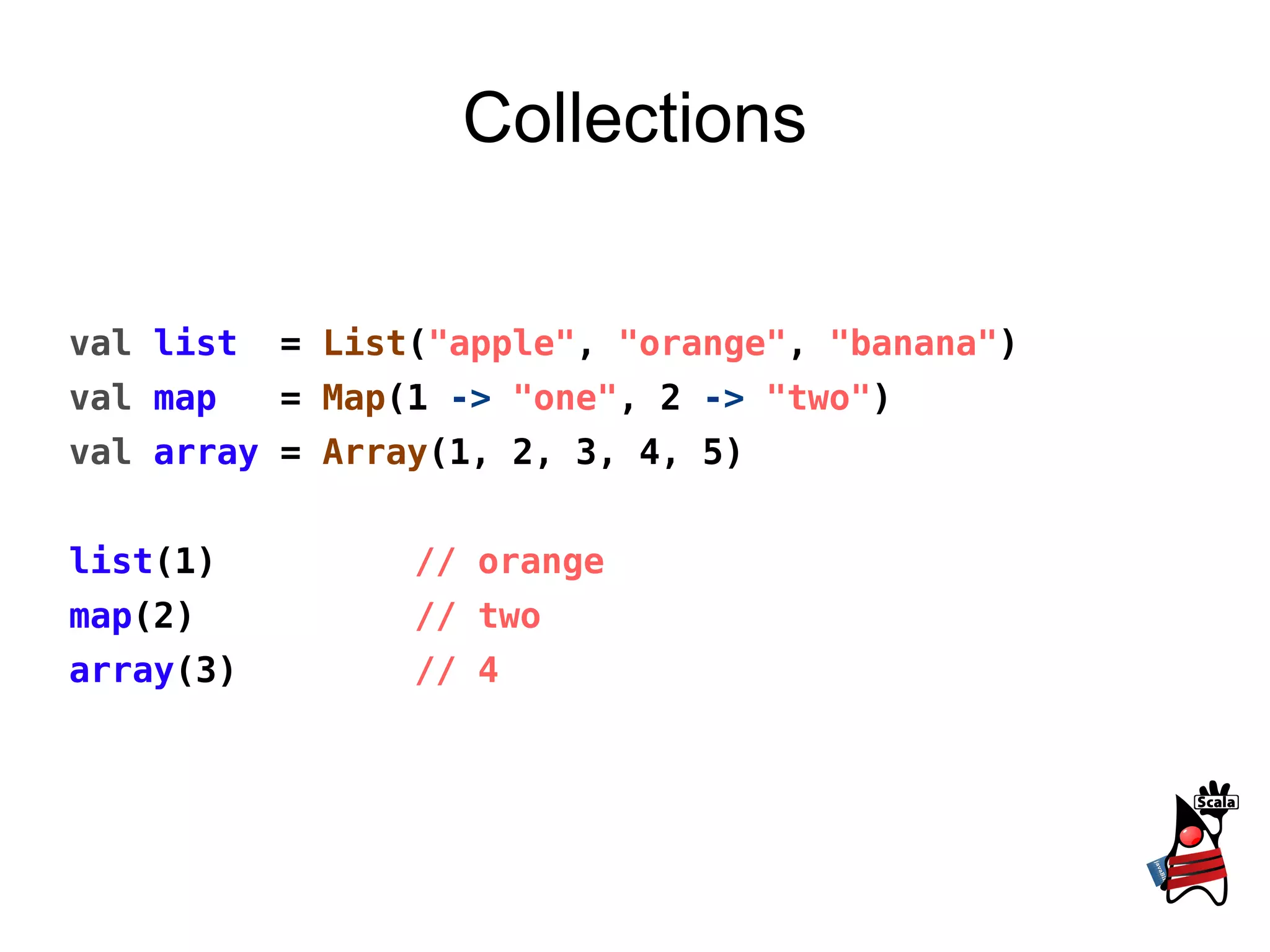
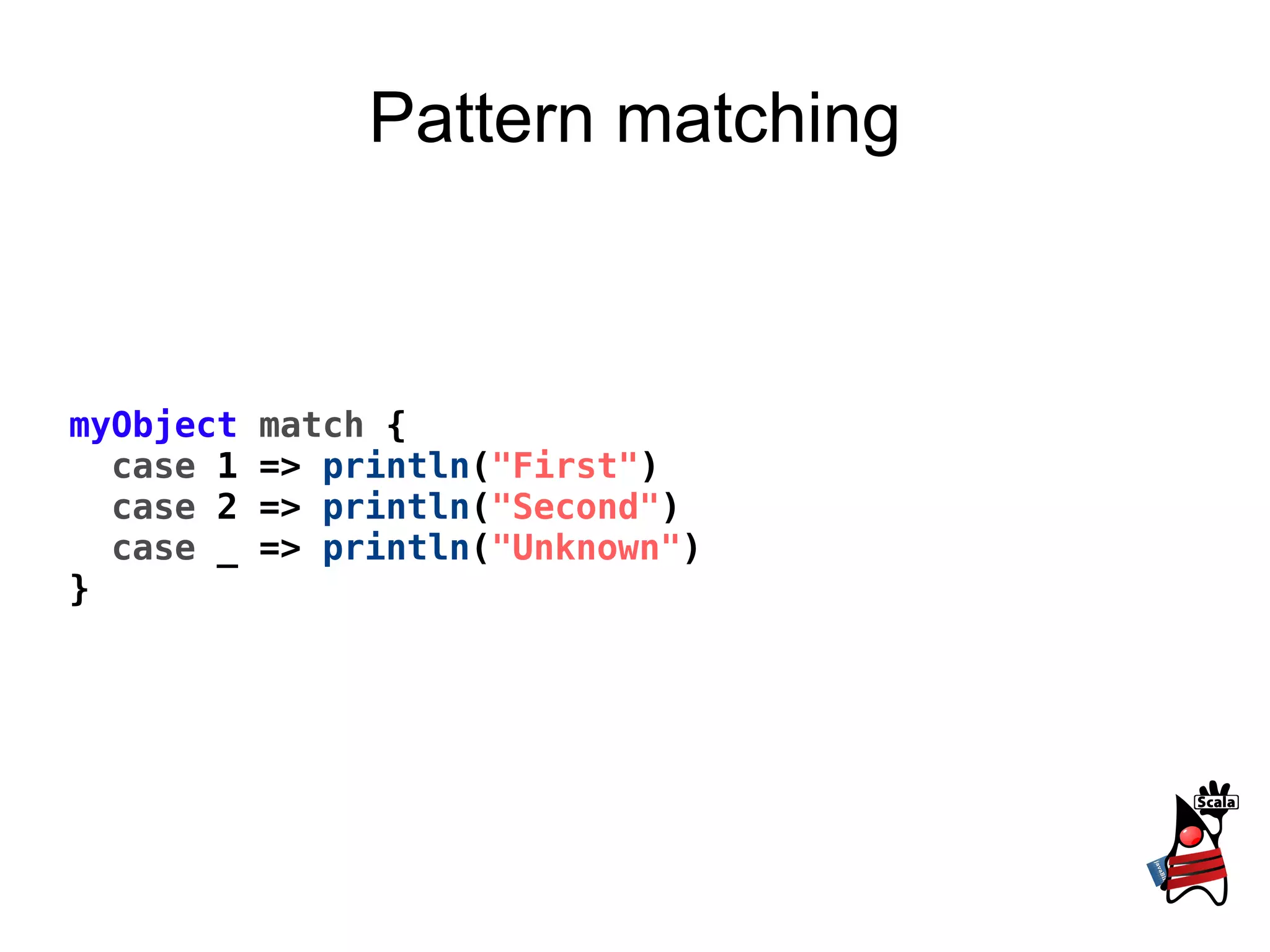
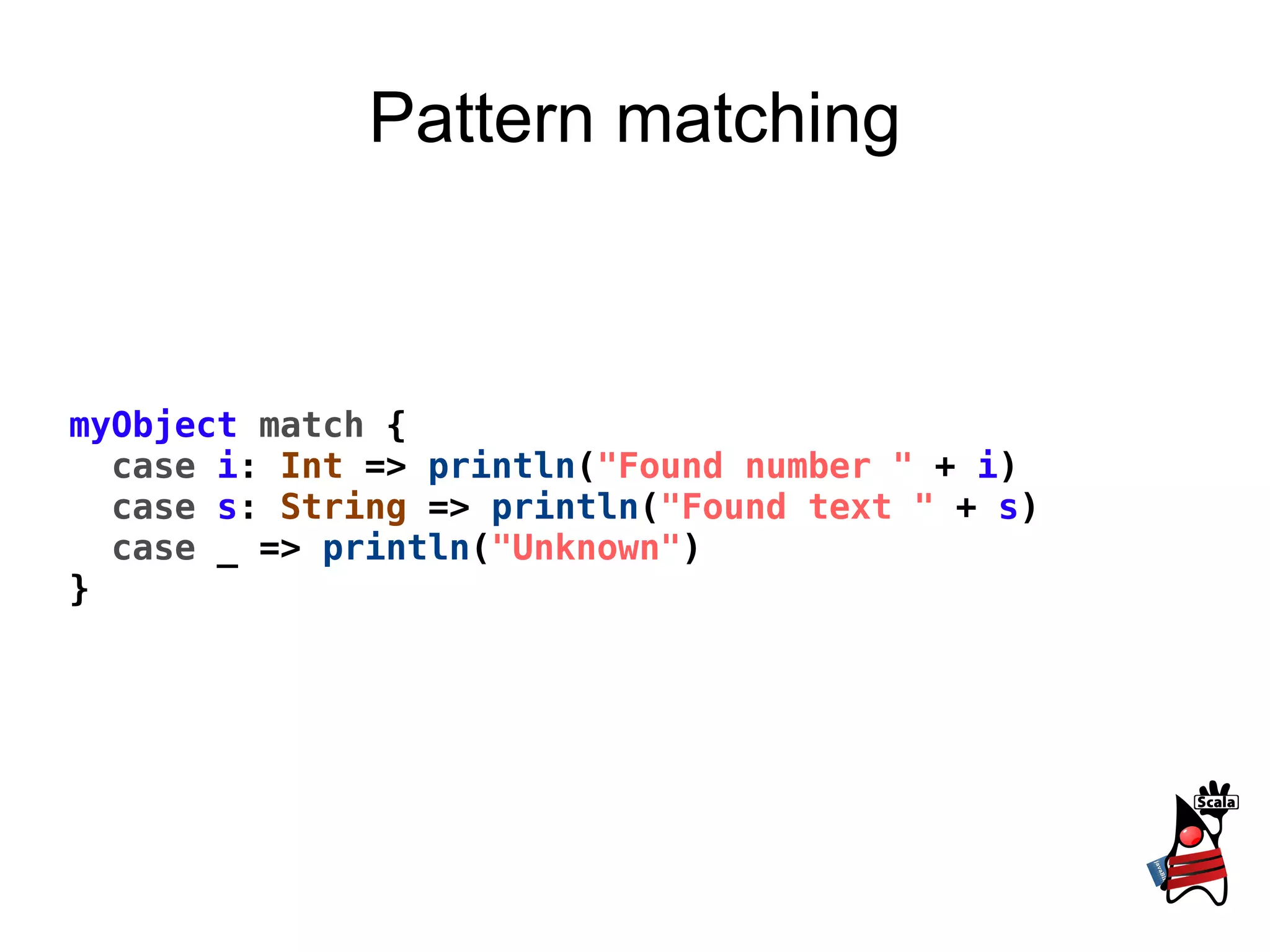
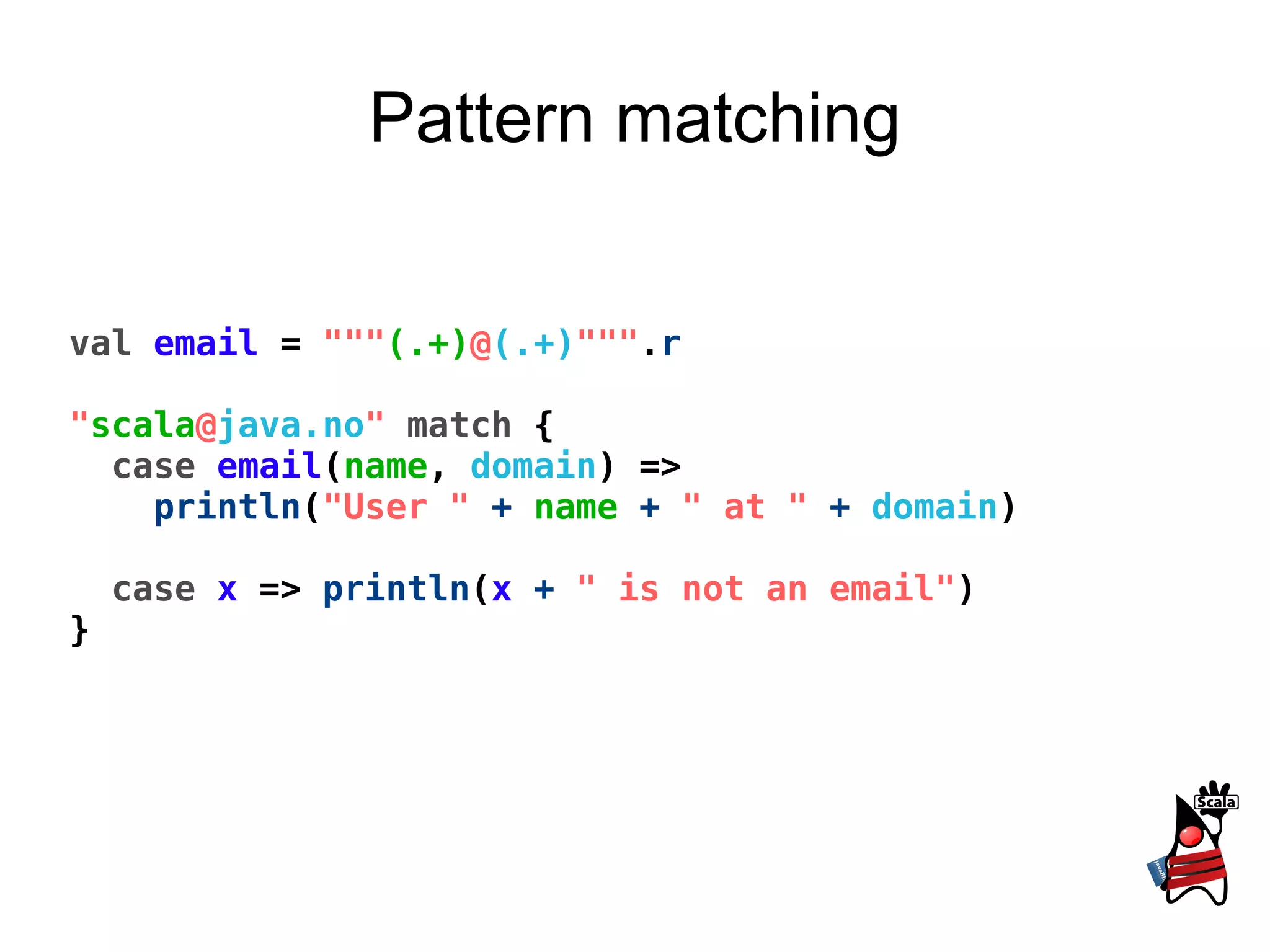
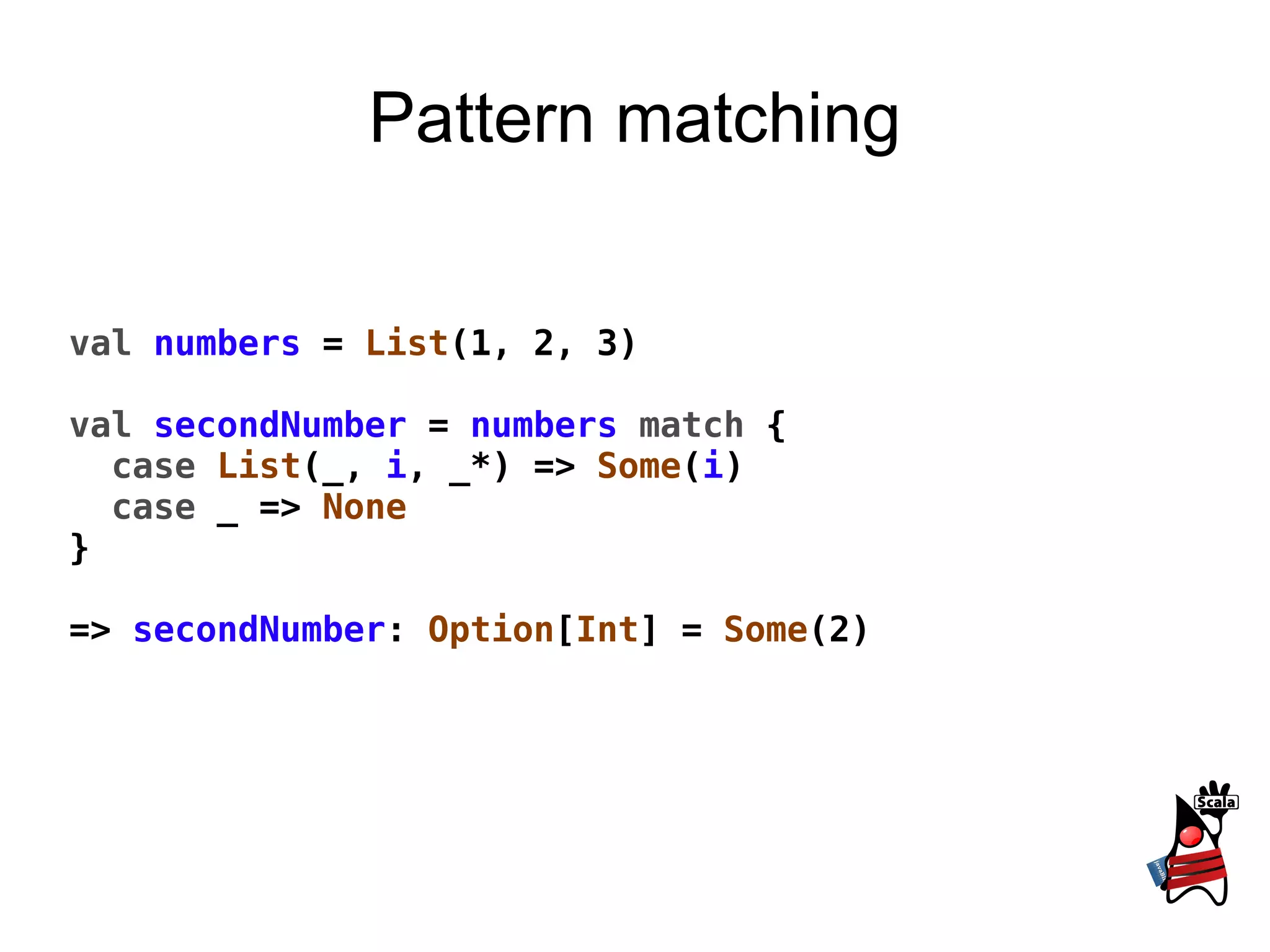
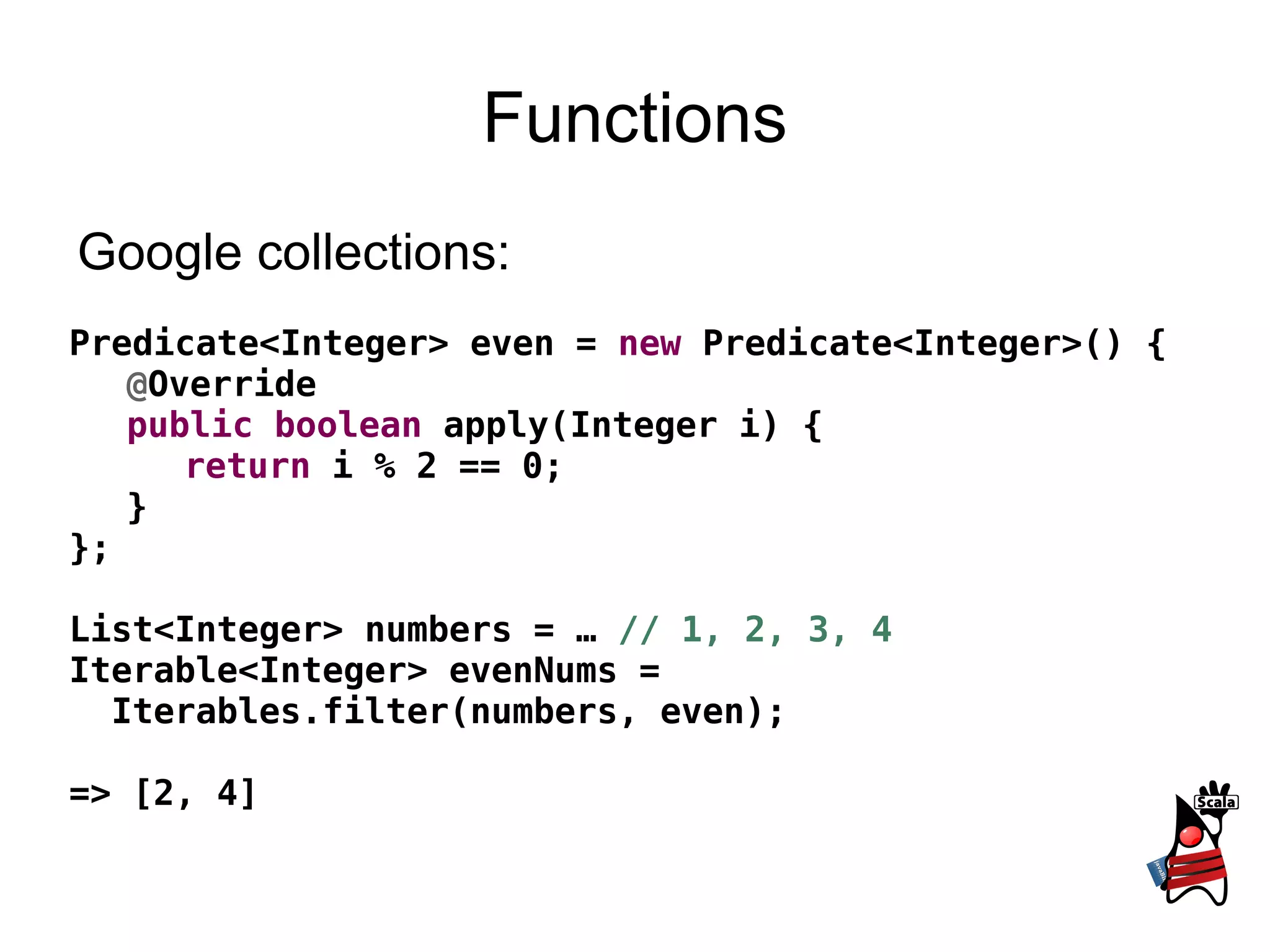
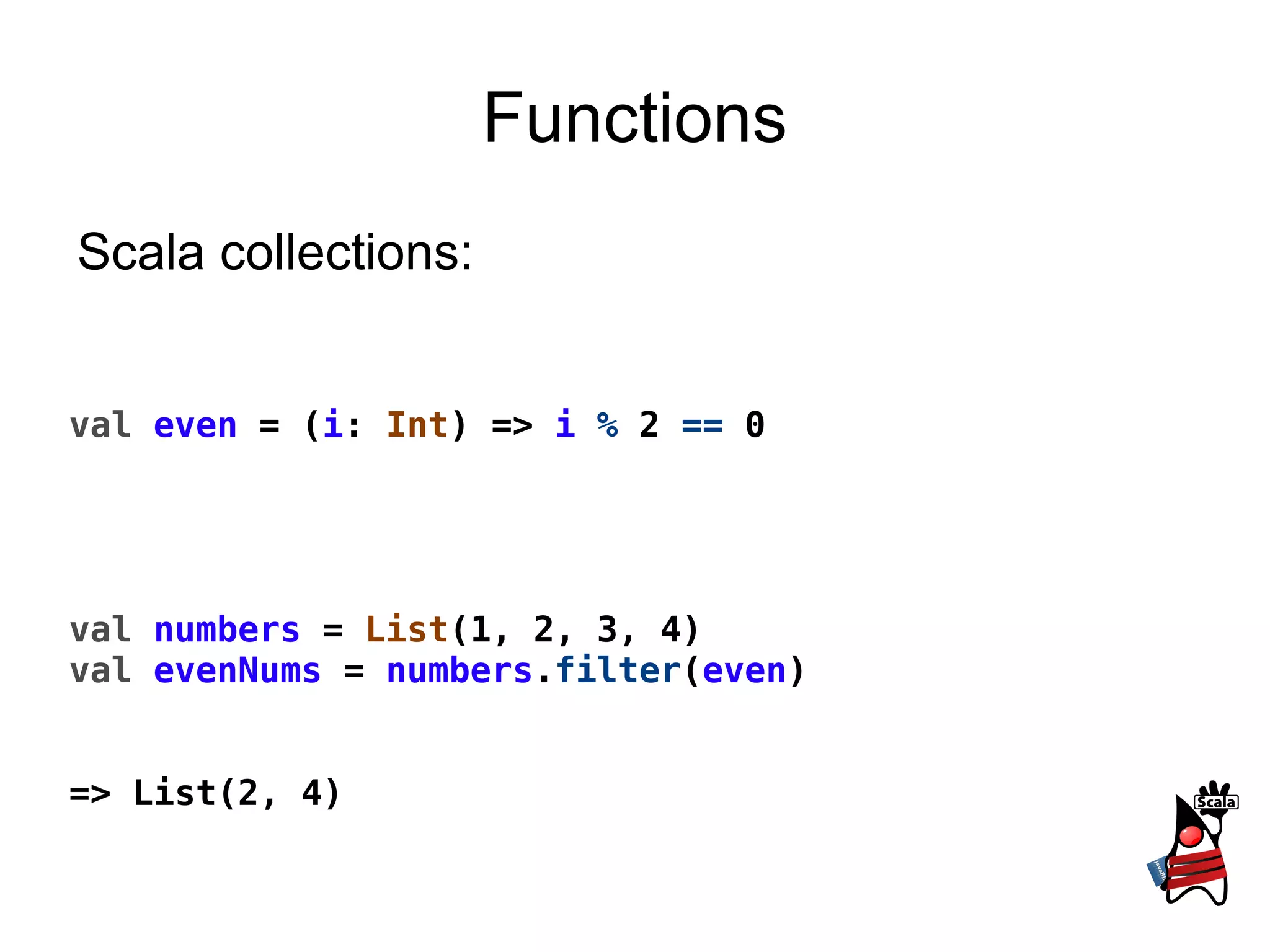
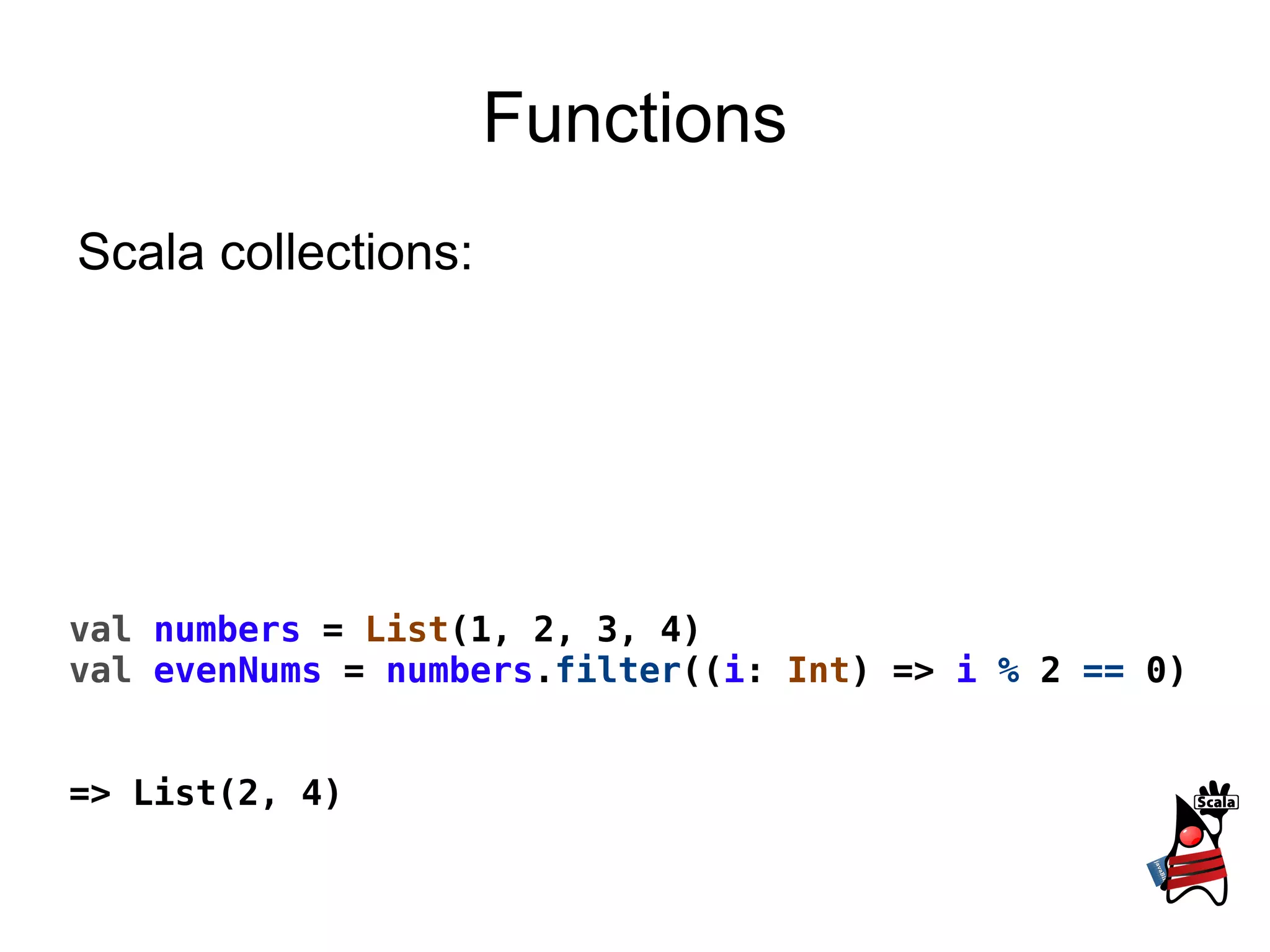
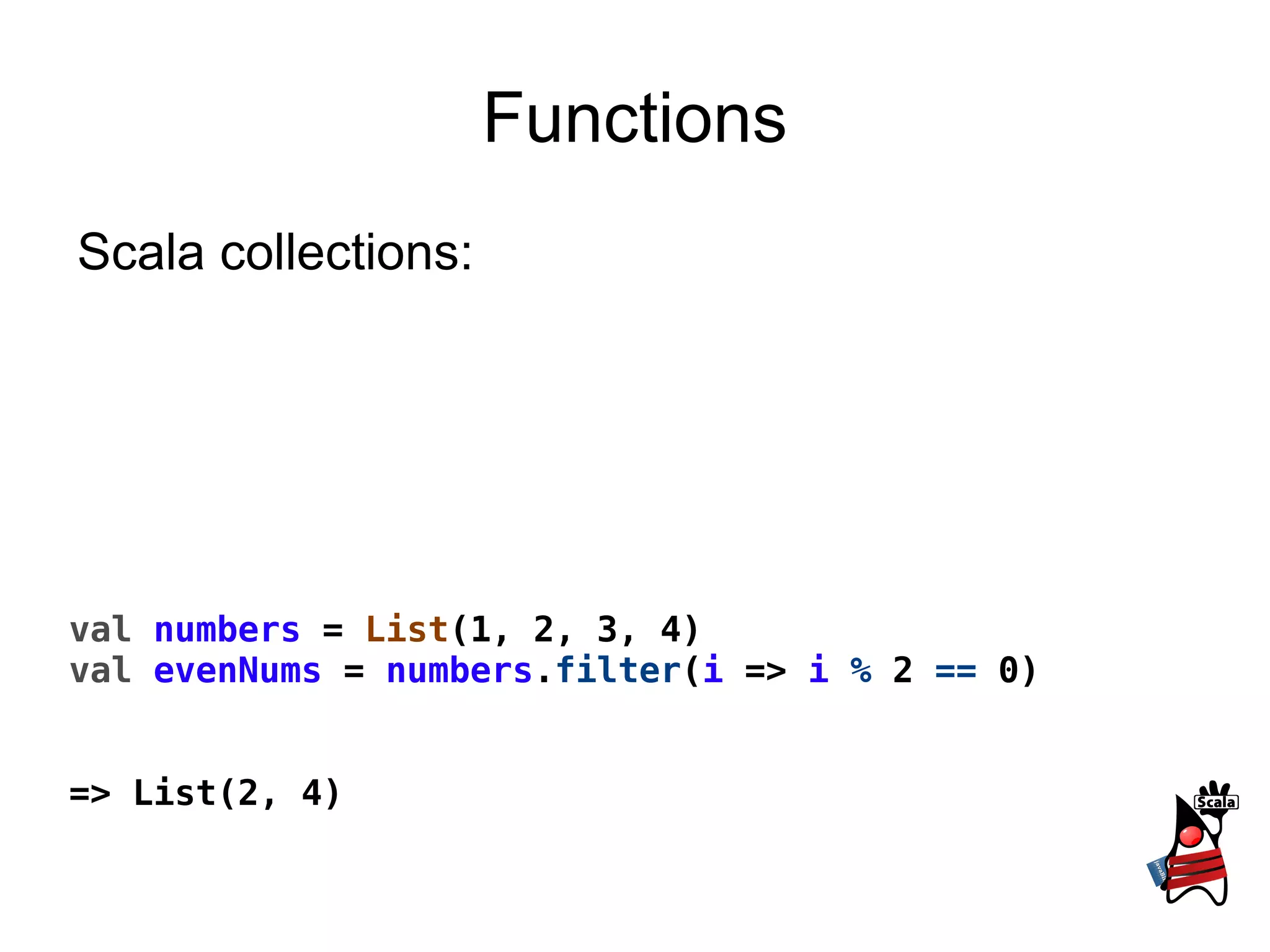
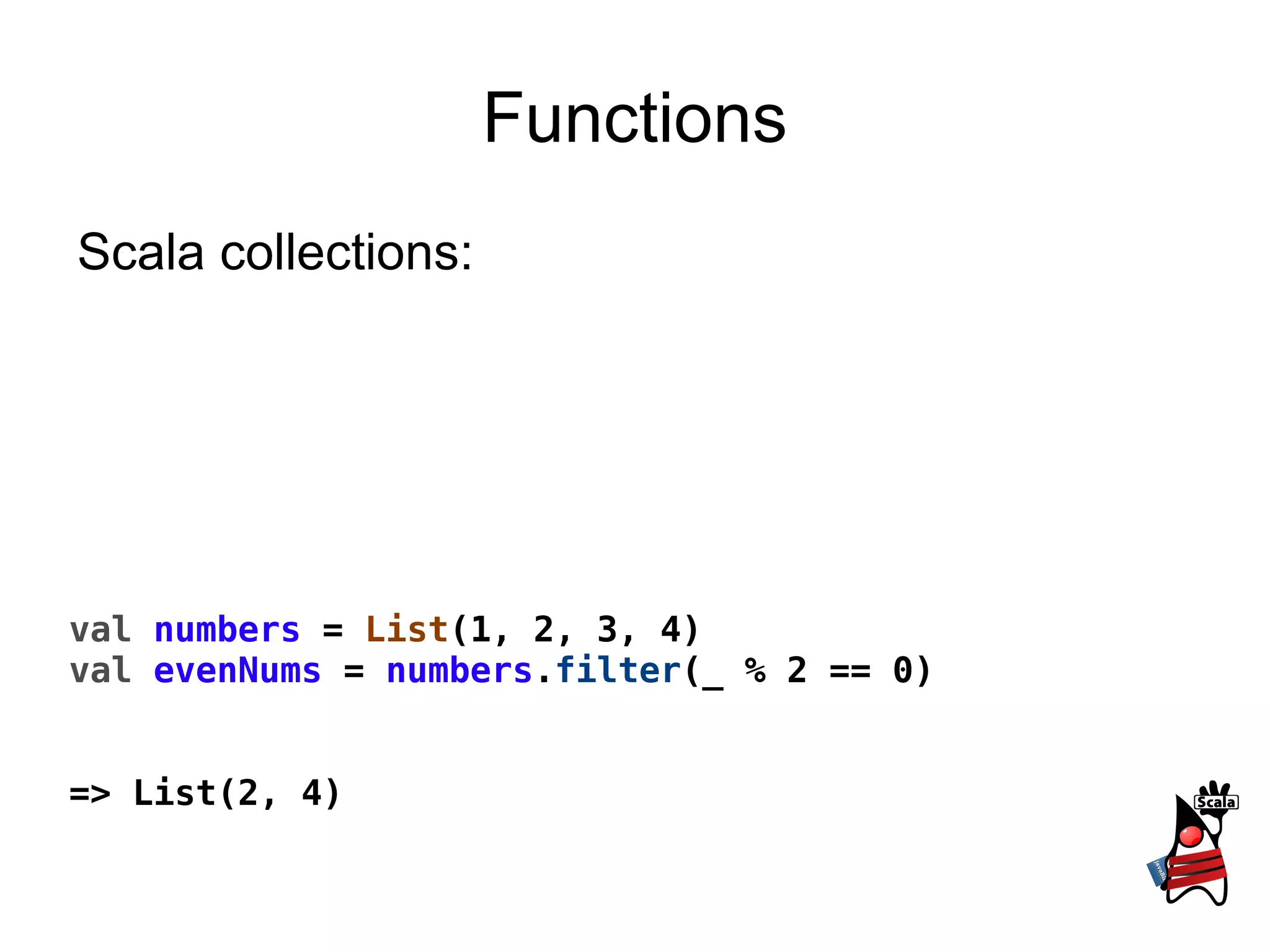
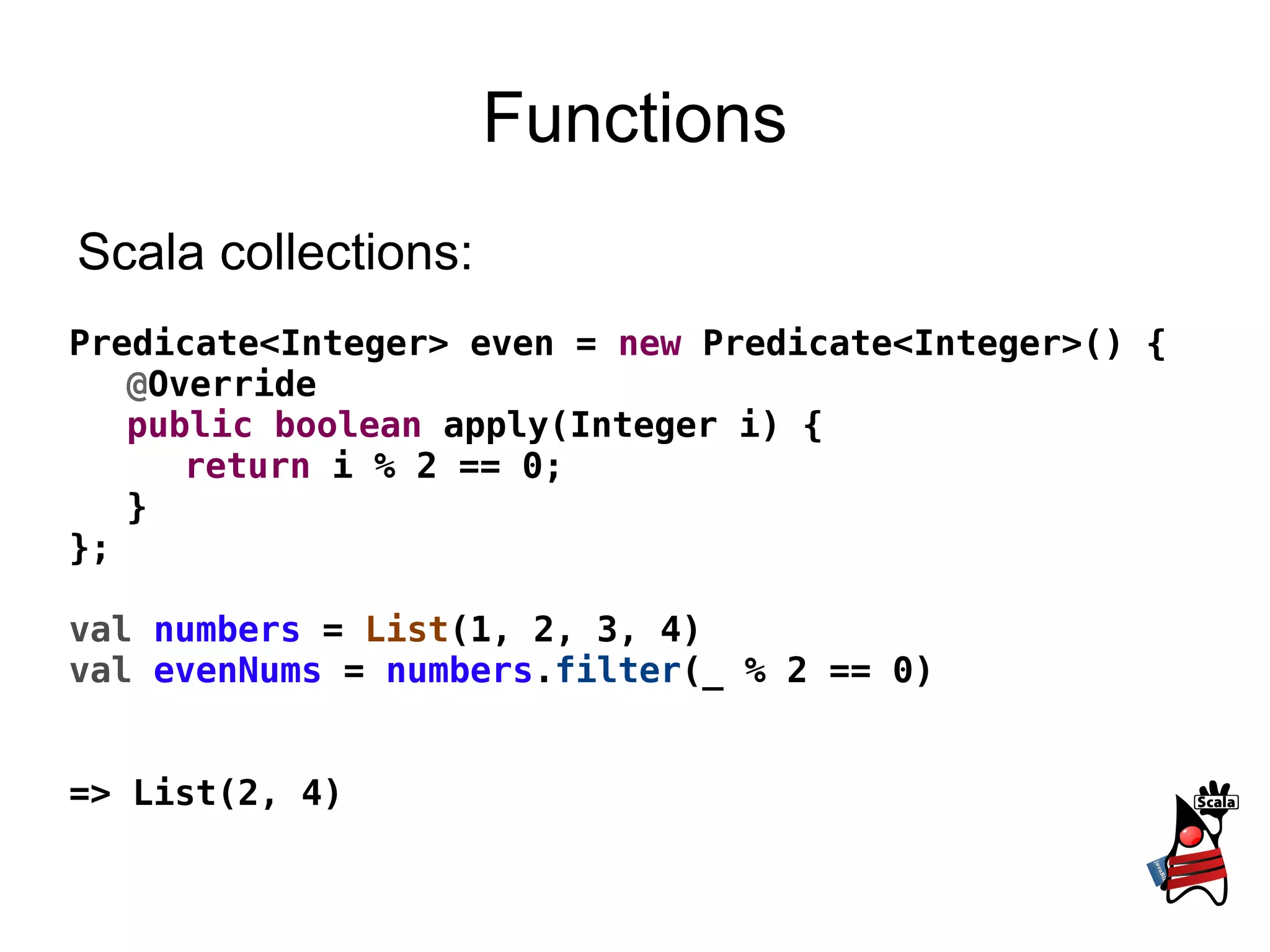
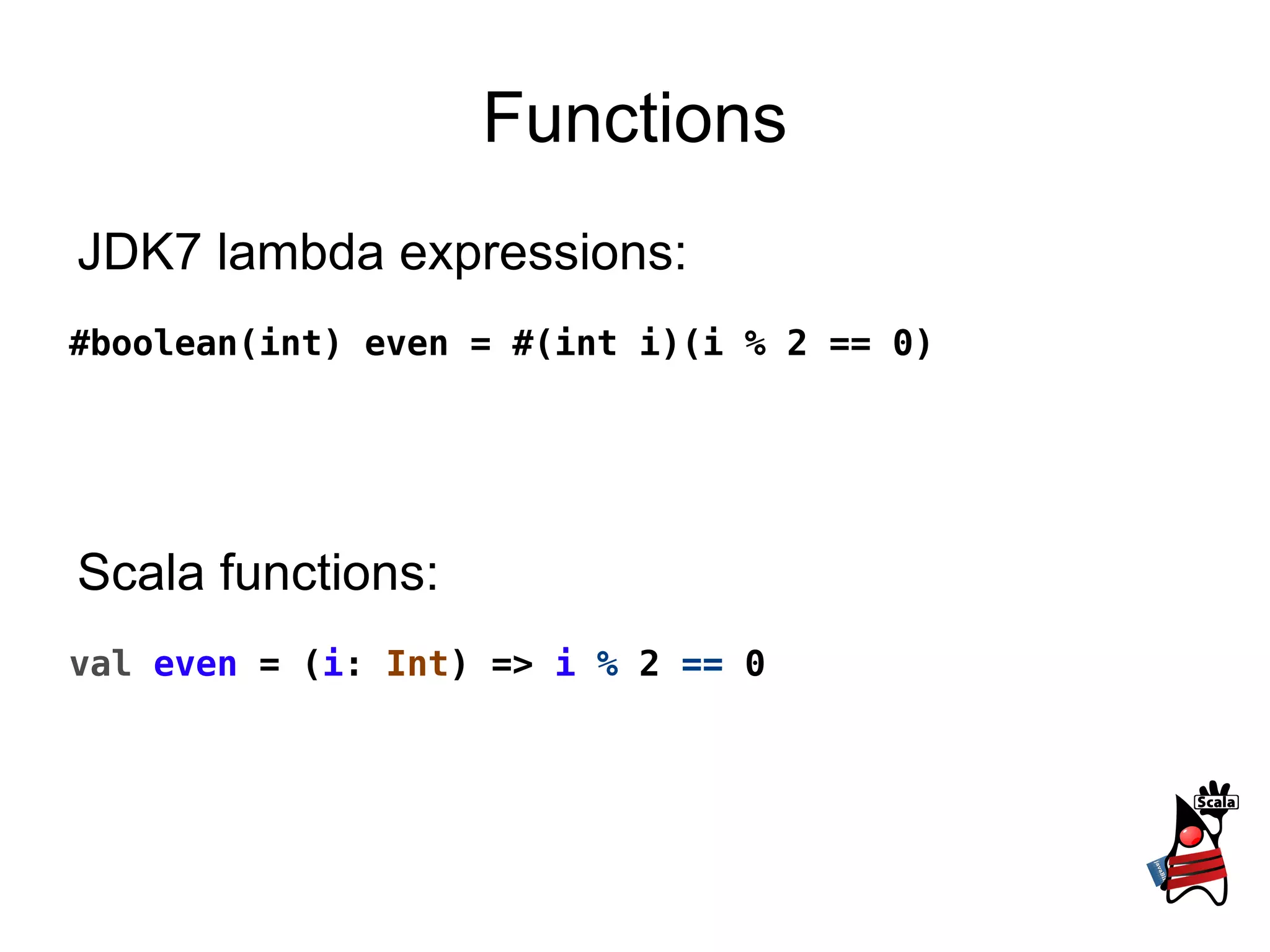
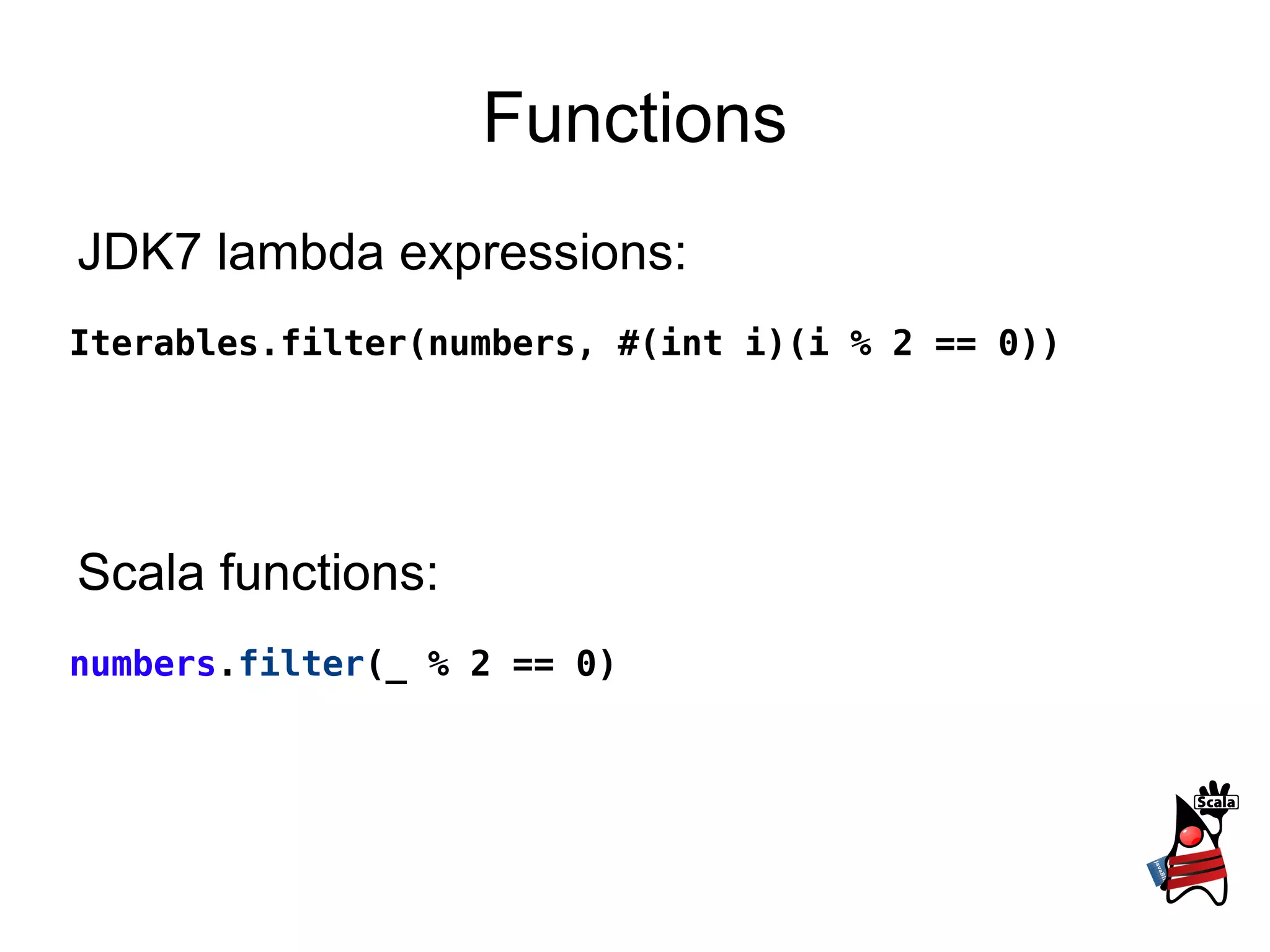
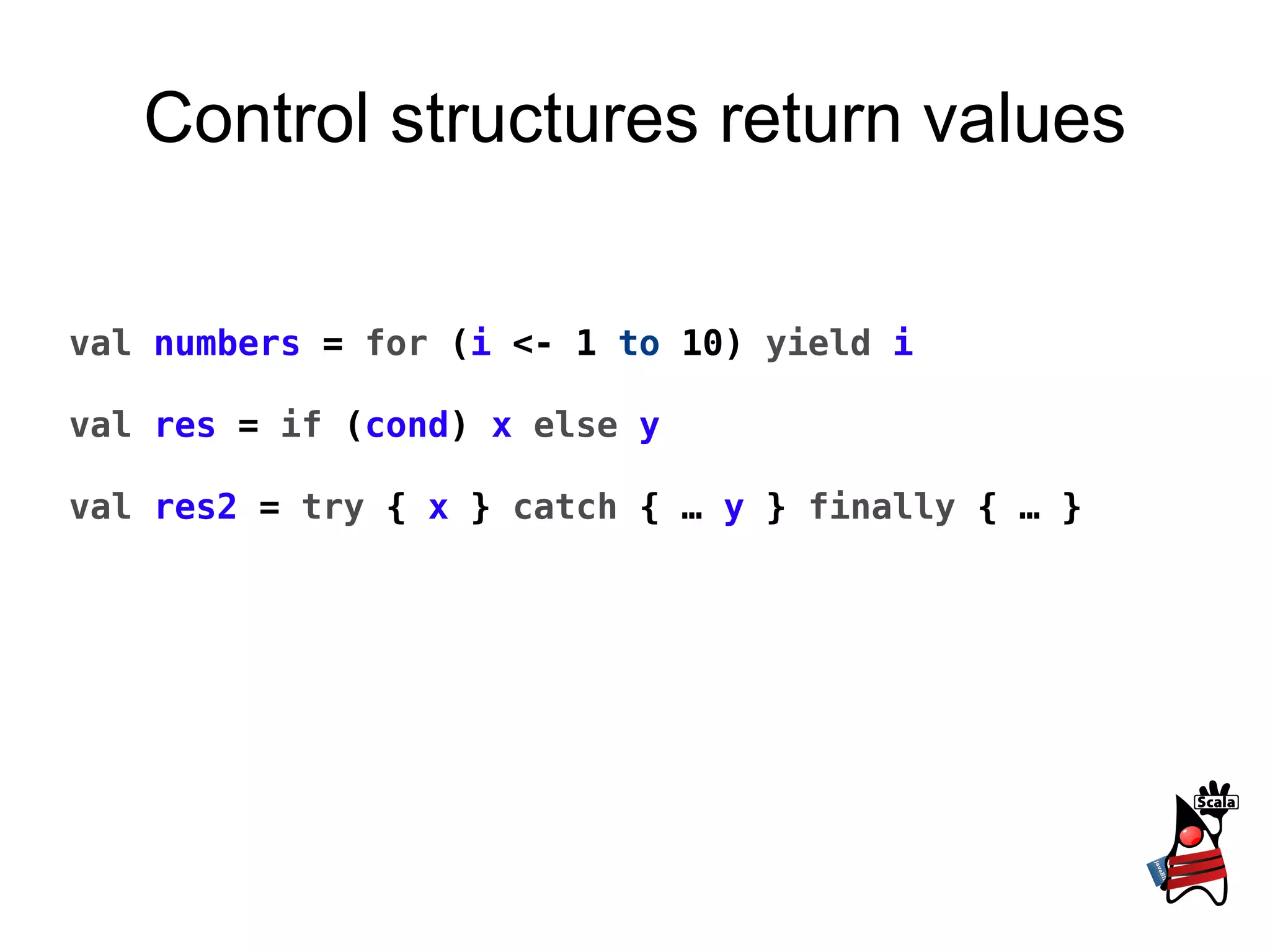
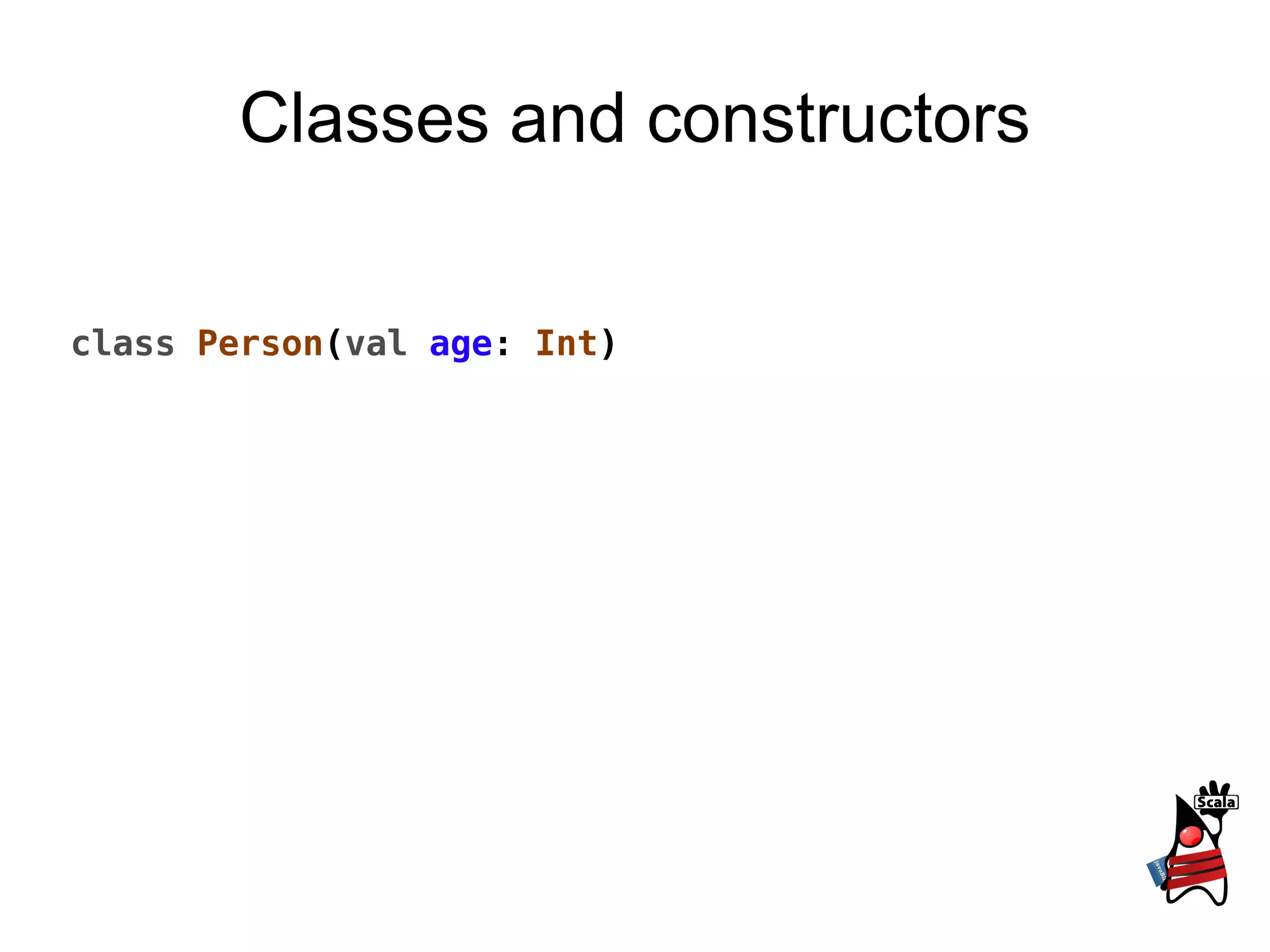
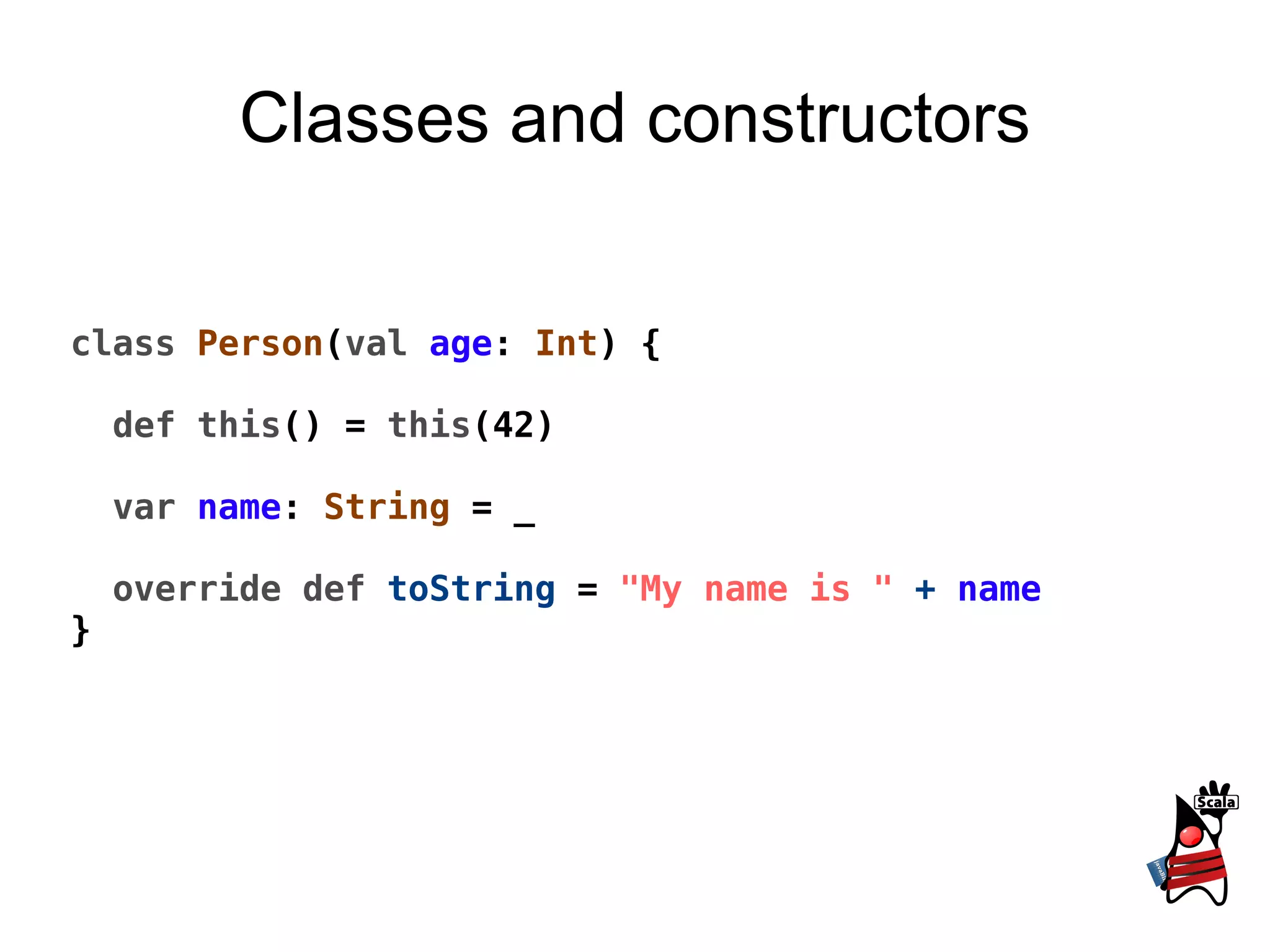
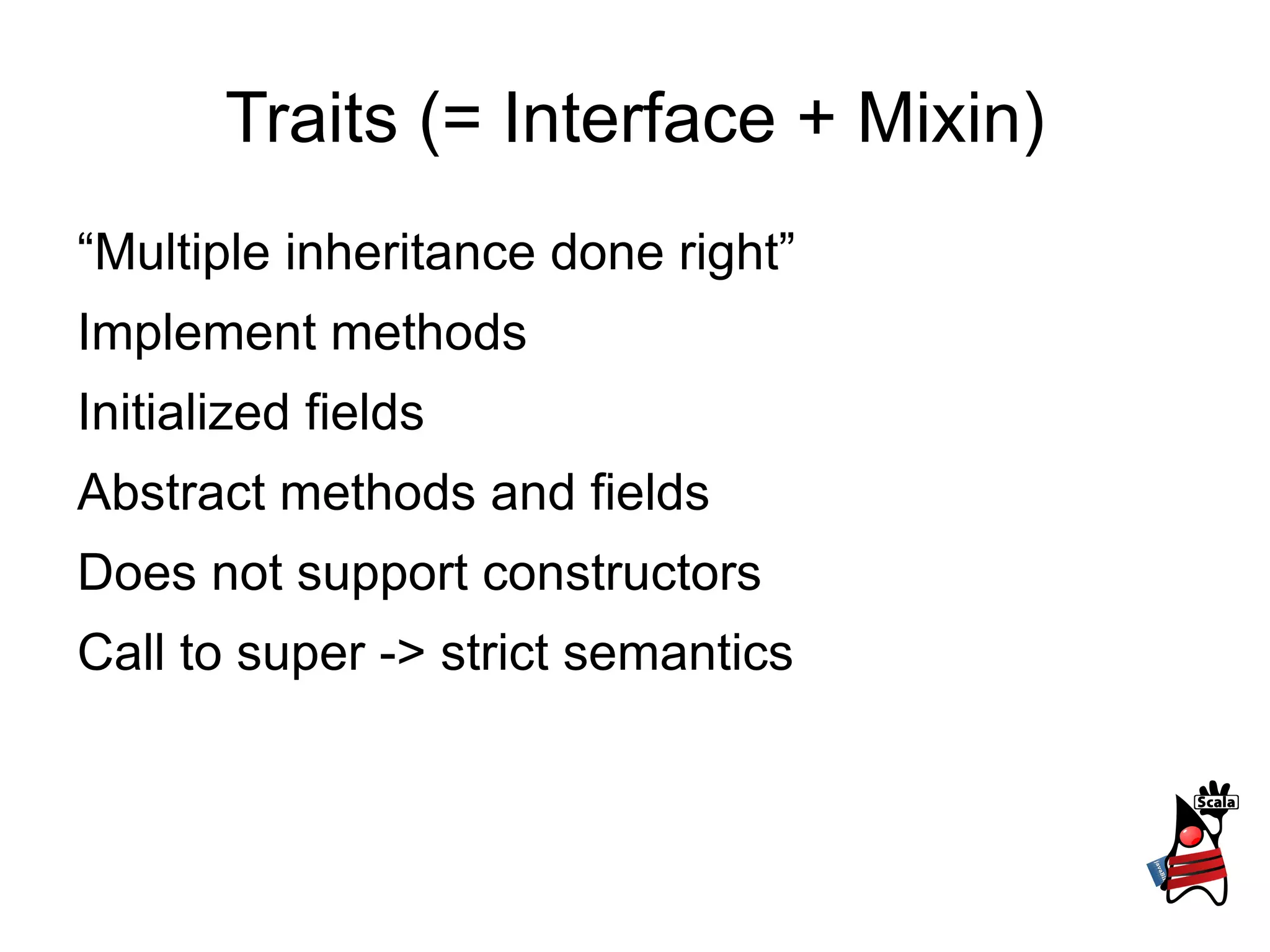
![val numbers = List (1, 2, 3) val secondNumber = numbers match { case List (_, i , _*) => Some ( i ) case _ => None } => secondNumber : Option [ Int ] = Some (2) Pattern matching](https://image.slidesharecdn.com/scala-introduction-100423050631-phpapp01/75/Scala-introduction-38-2048.jpg)
![Functions Predicate <Integer> even = new Predicate <Integer>() { @ Override public boolean apply(Integer i) { return i % 2 == 0; } }; List<Integer> numbers = … // 1, 2, 3, 4 Iterable<Integer> evenNums = Iterables .filter(numbers, even); => [2, 4] Google collections:](https://image.slidesharecdn.com/scala-introduction-100423050631-phpapp01/75/Scala-introduction-39-2048.jpg)
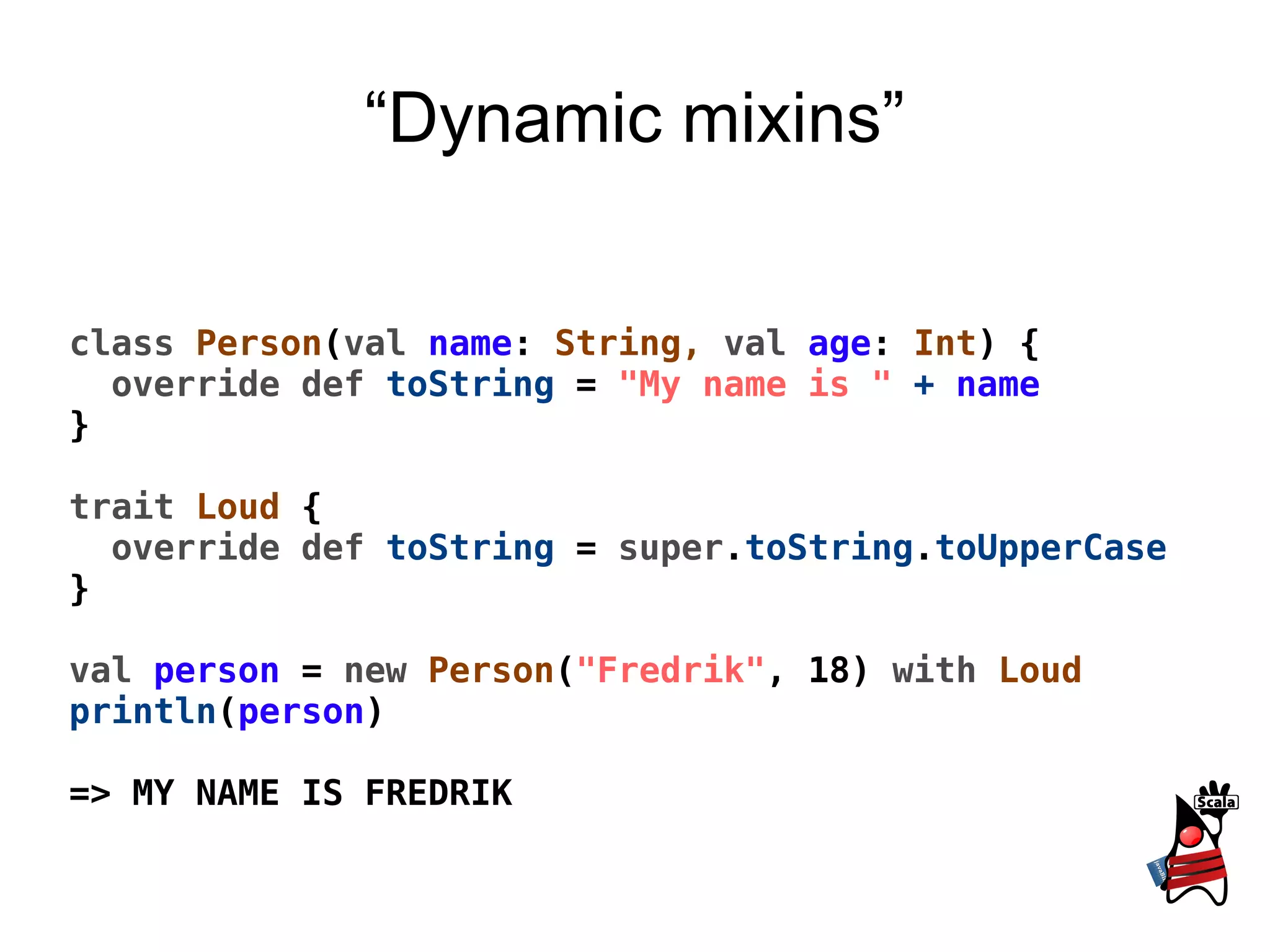
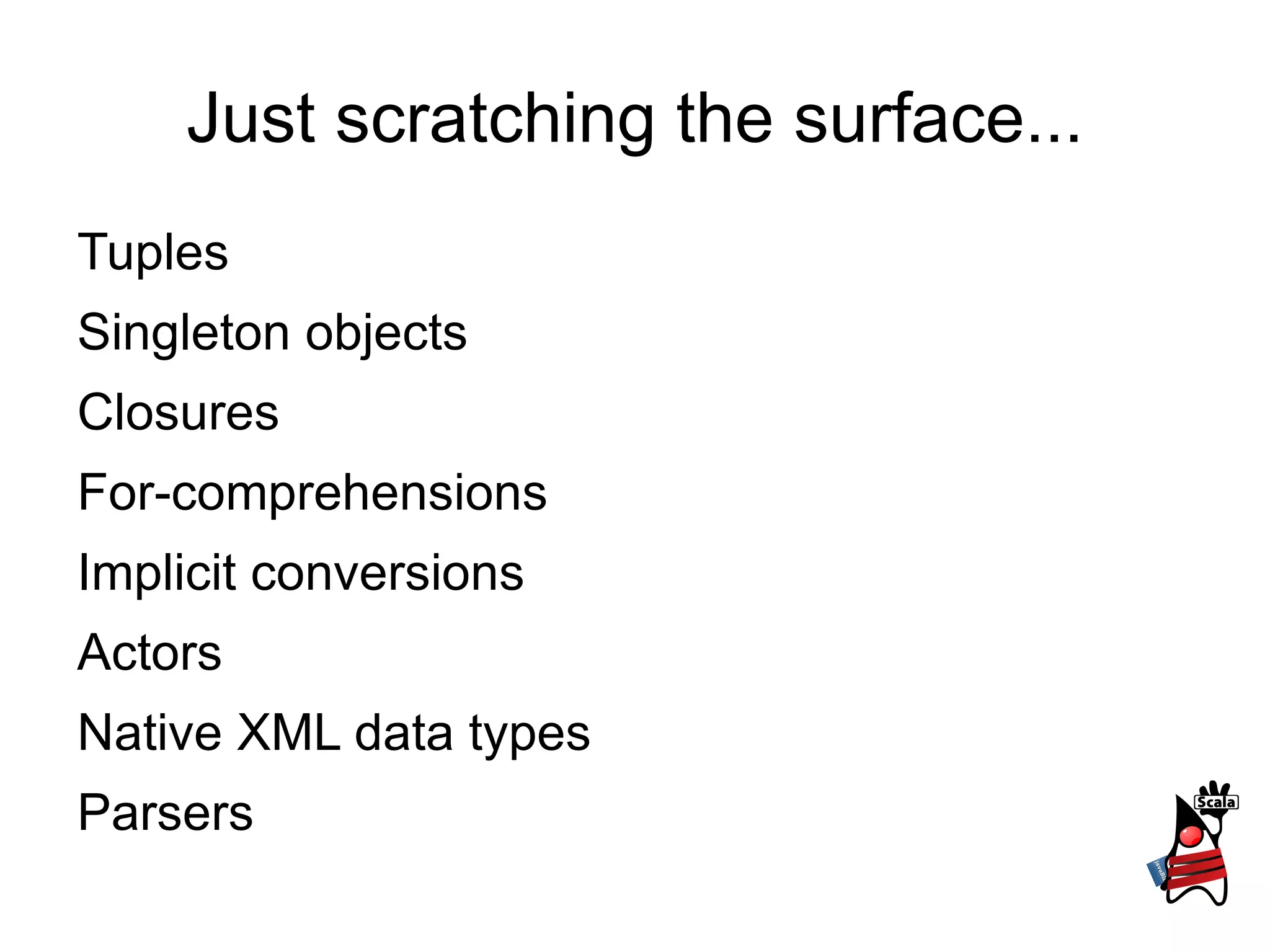
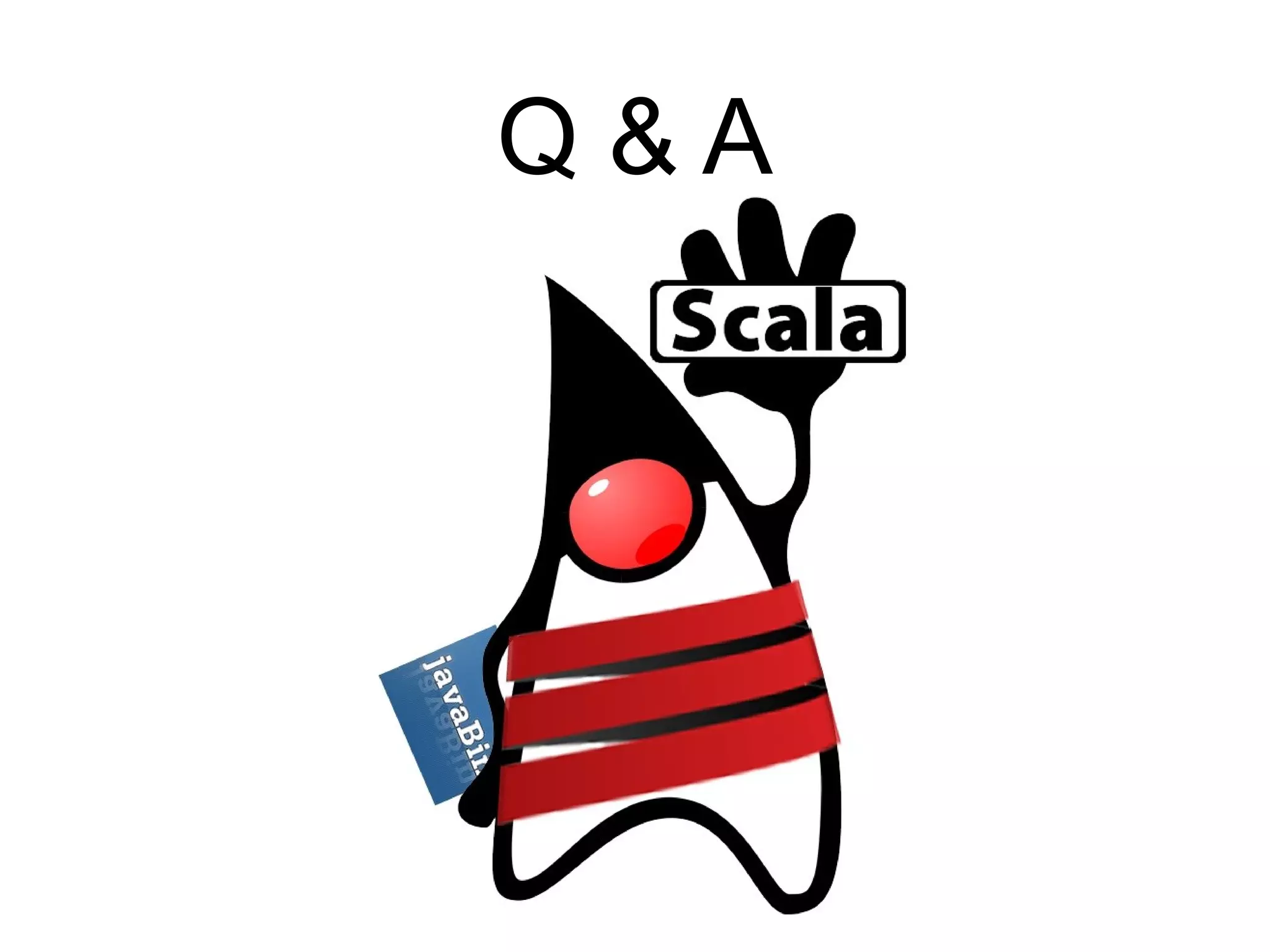
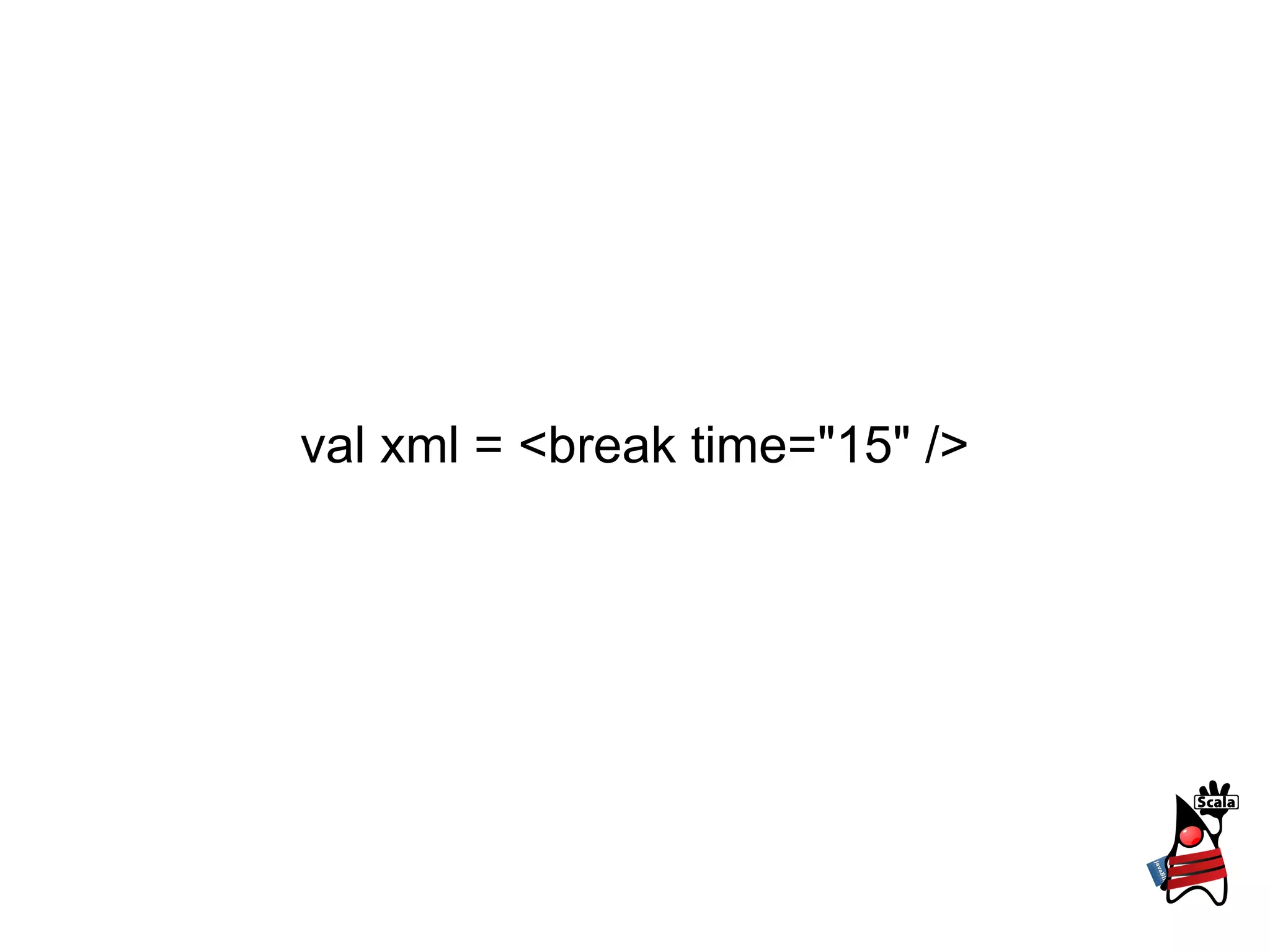
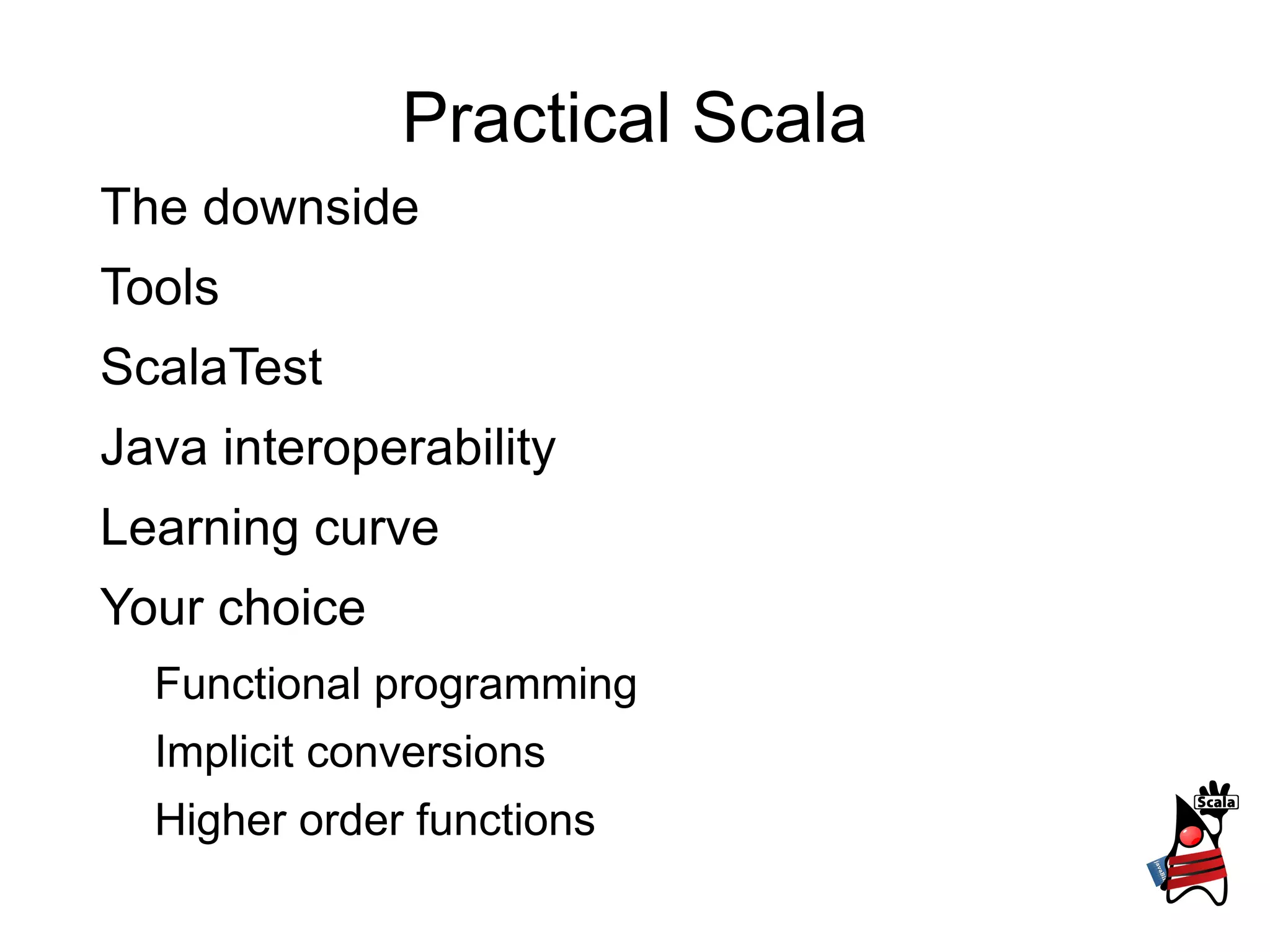
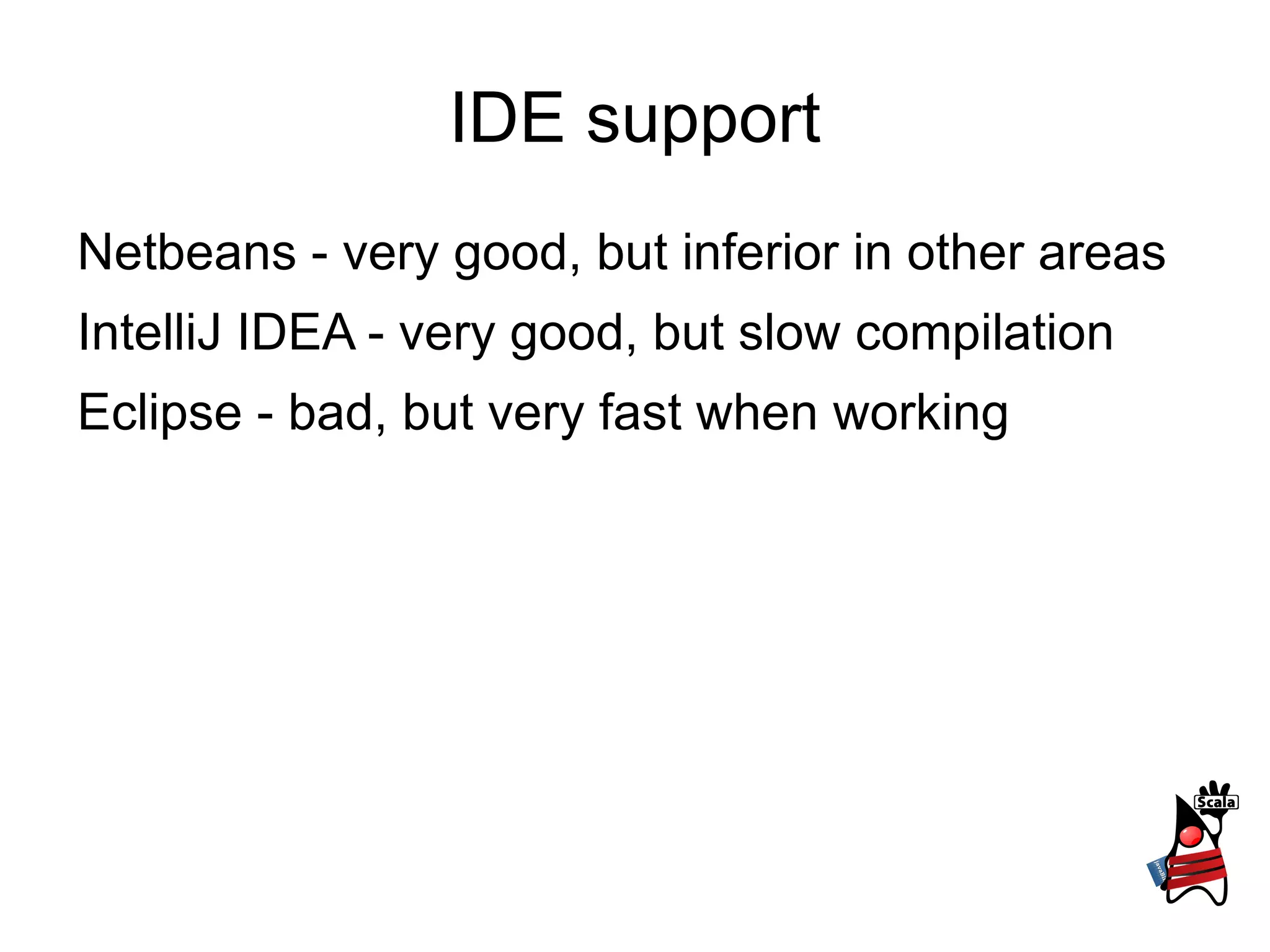
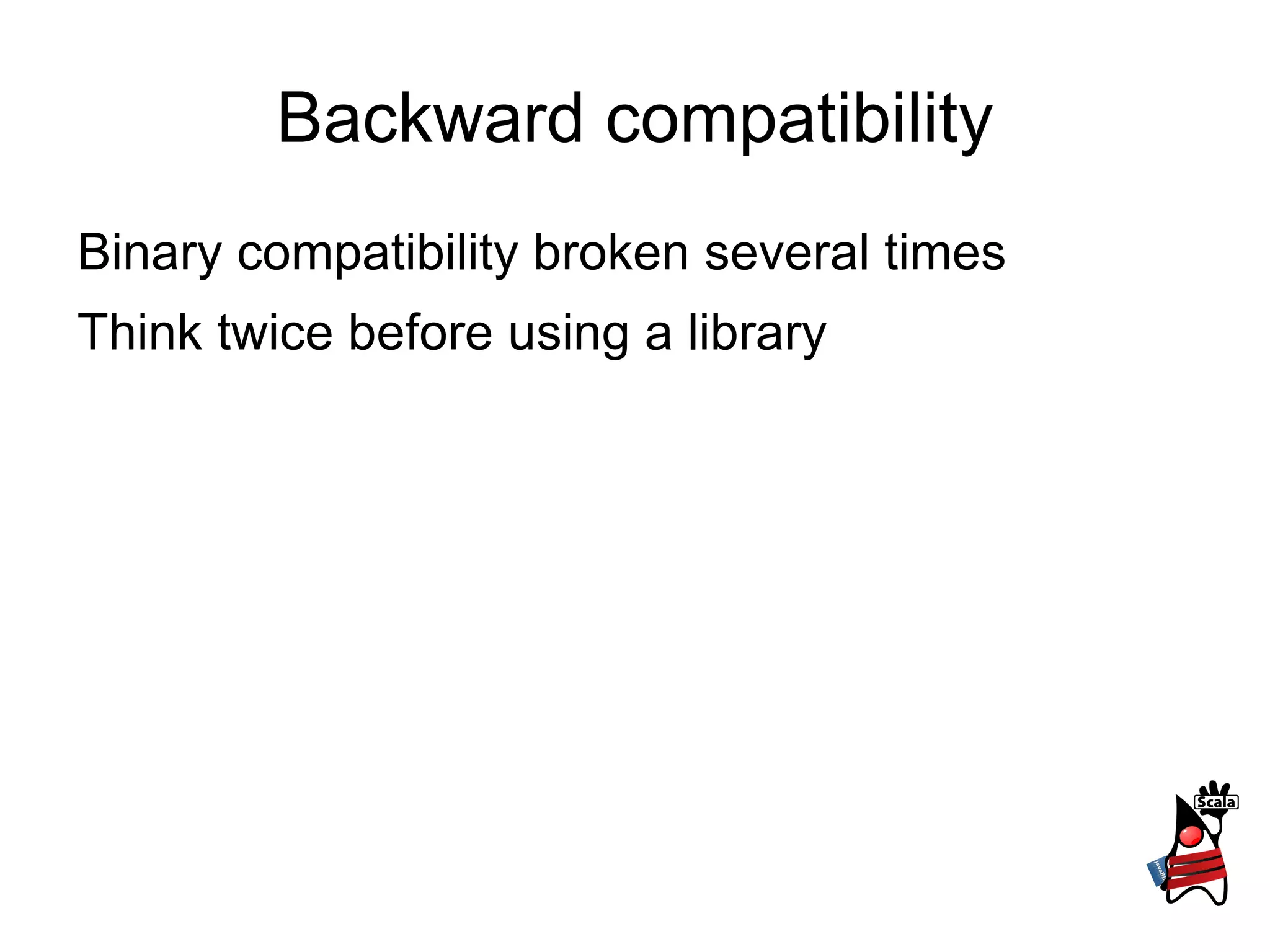
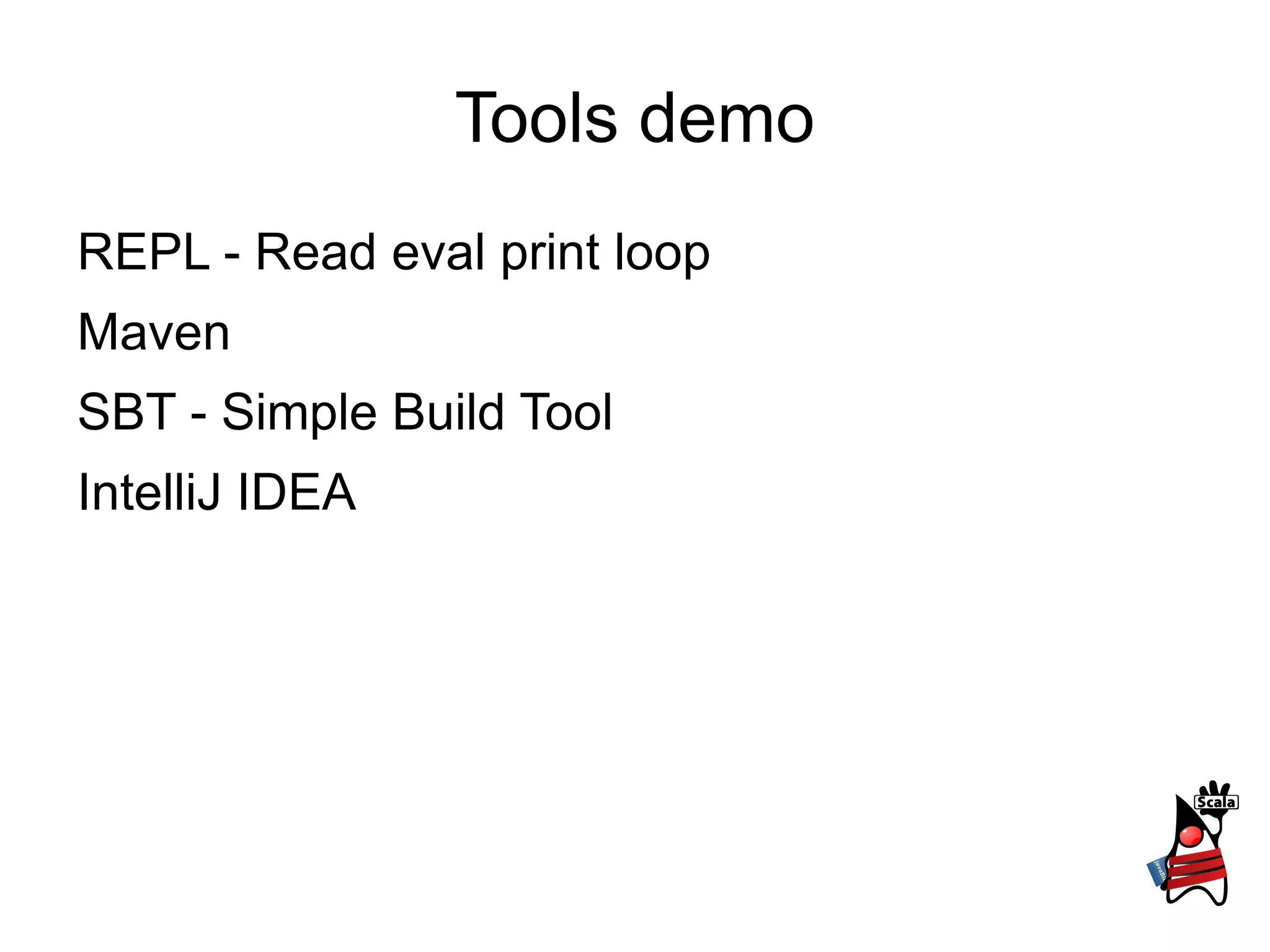
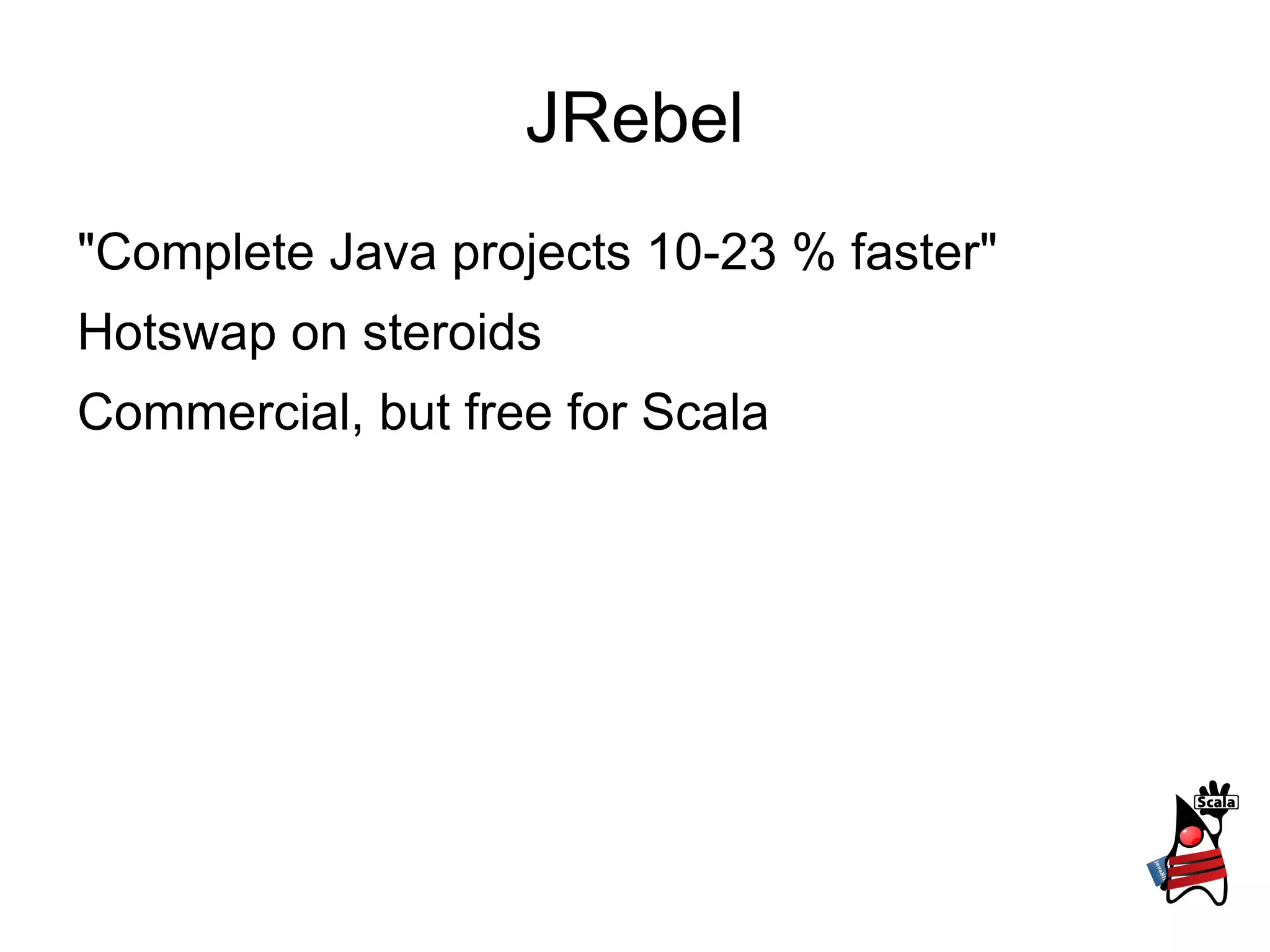
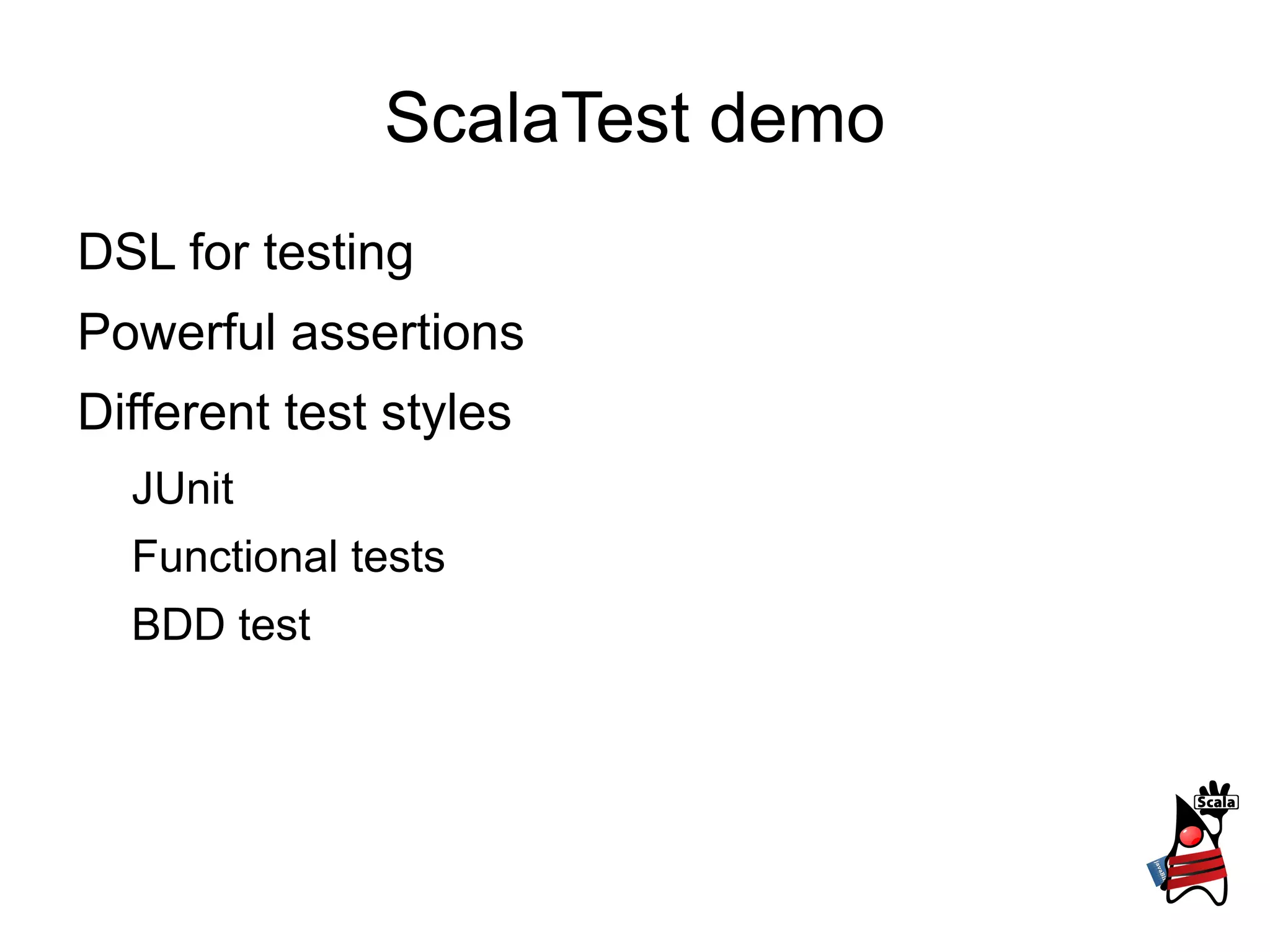
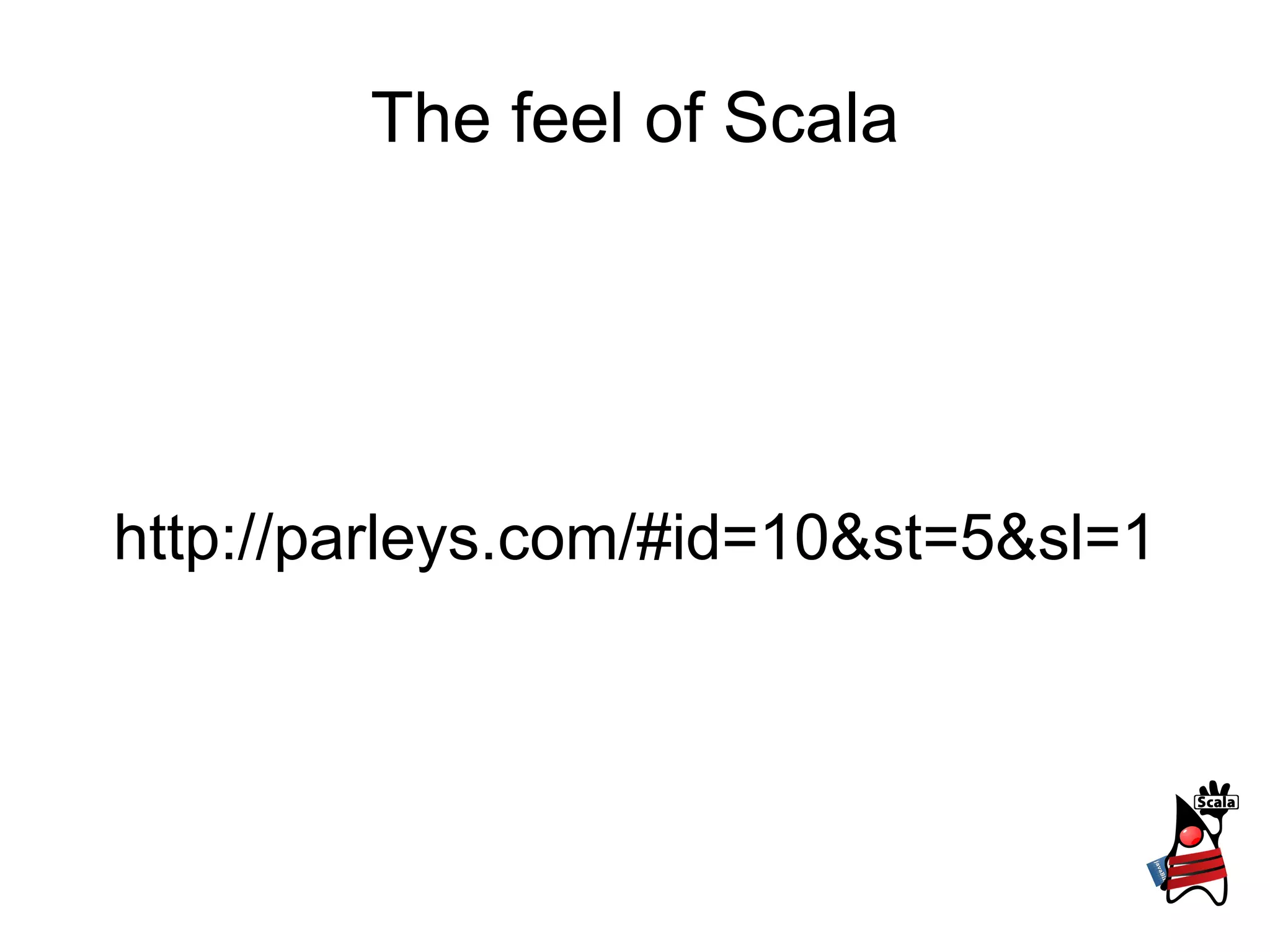
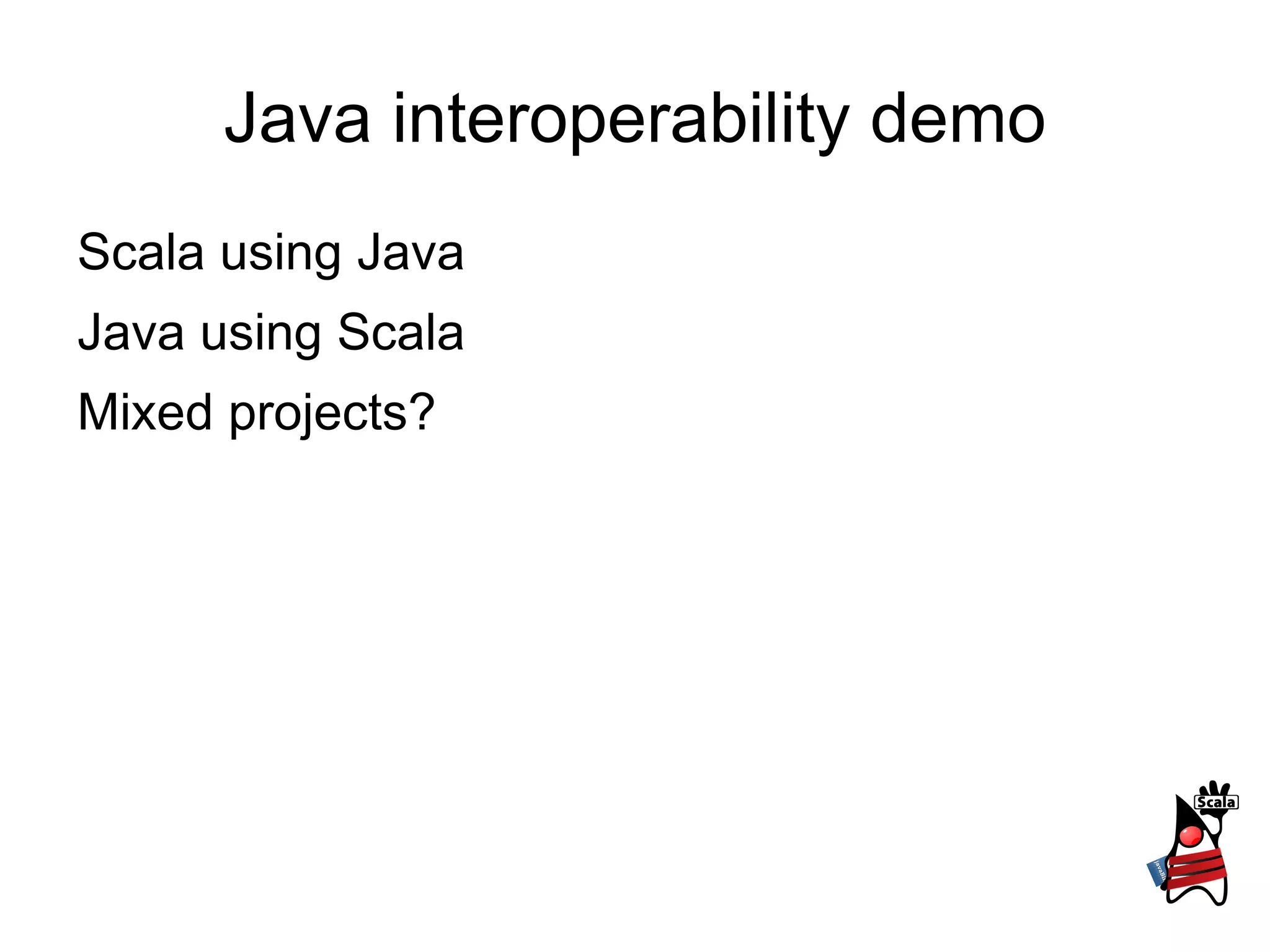
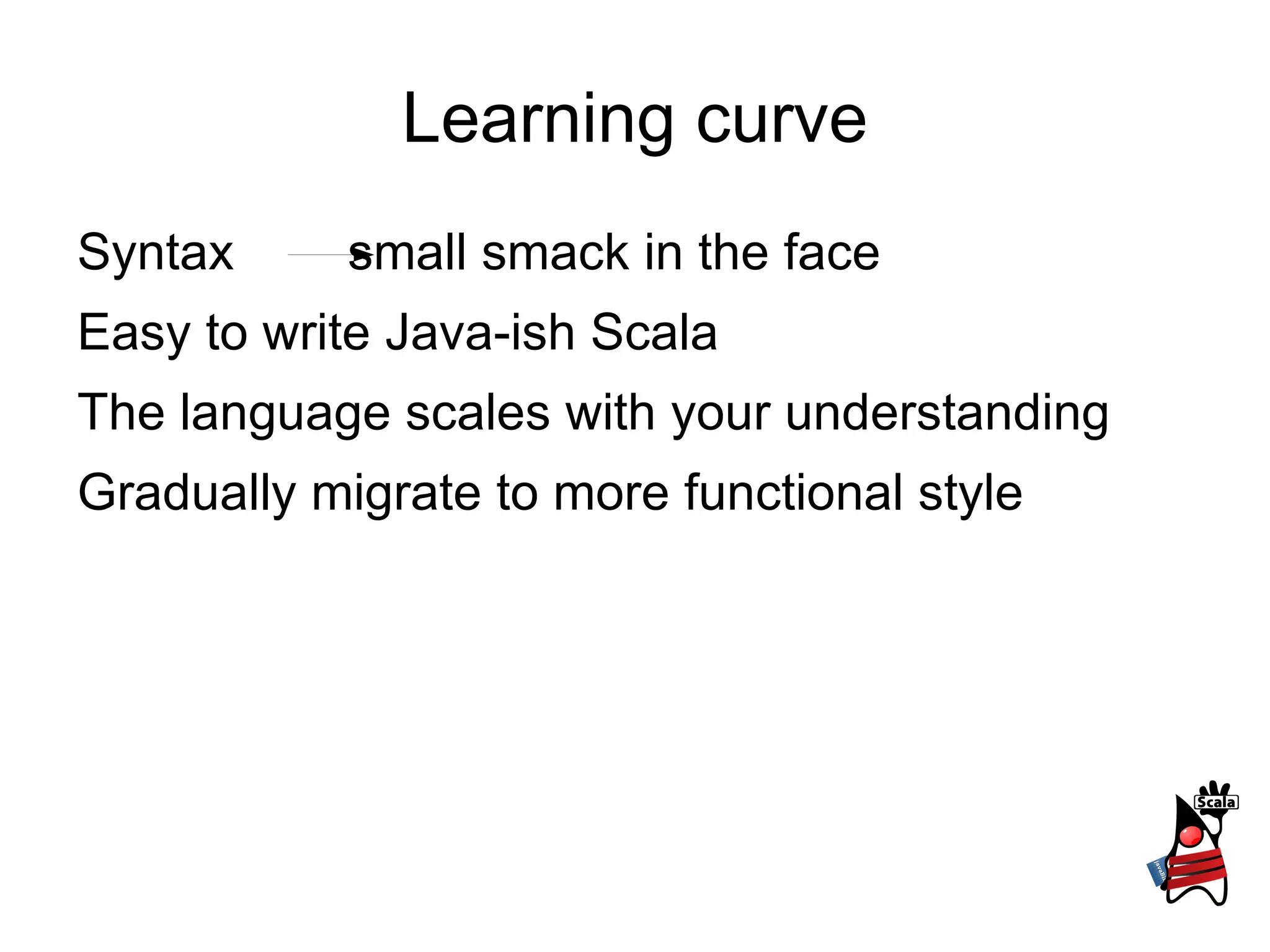
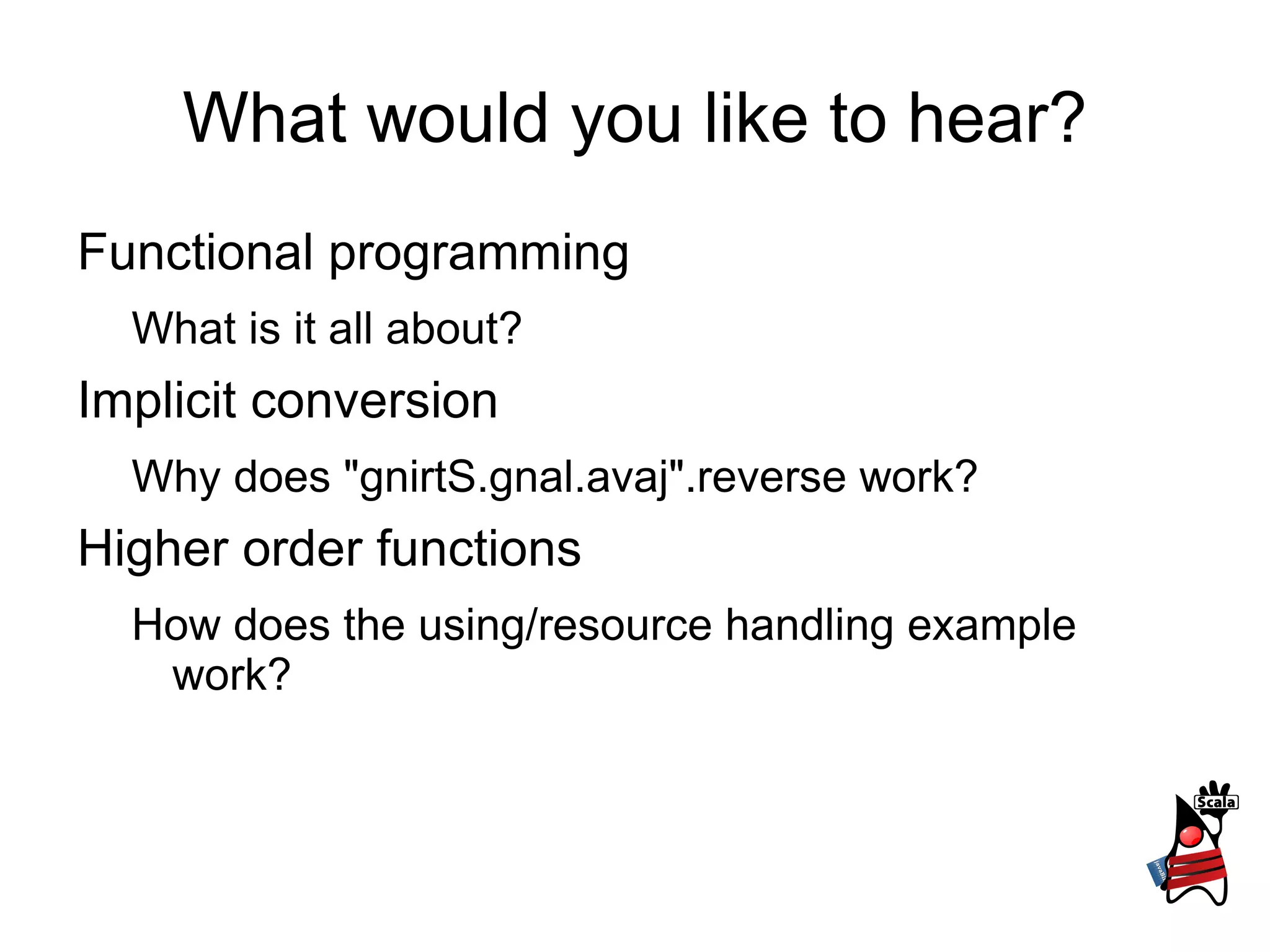
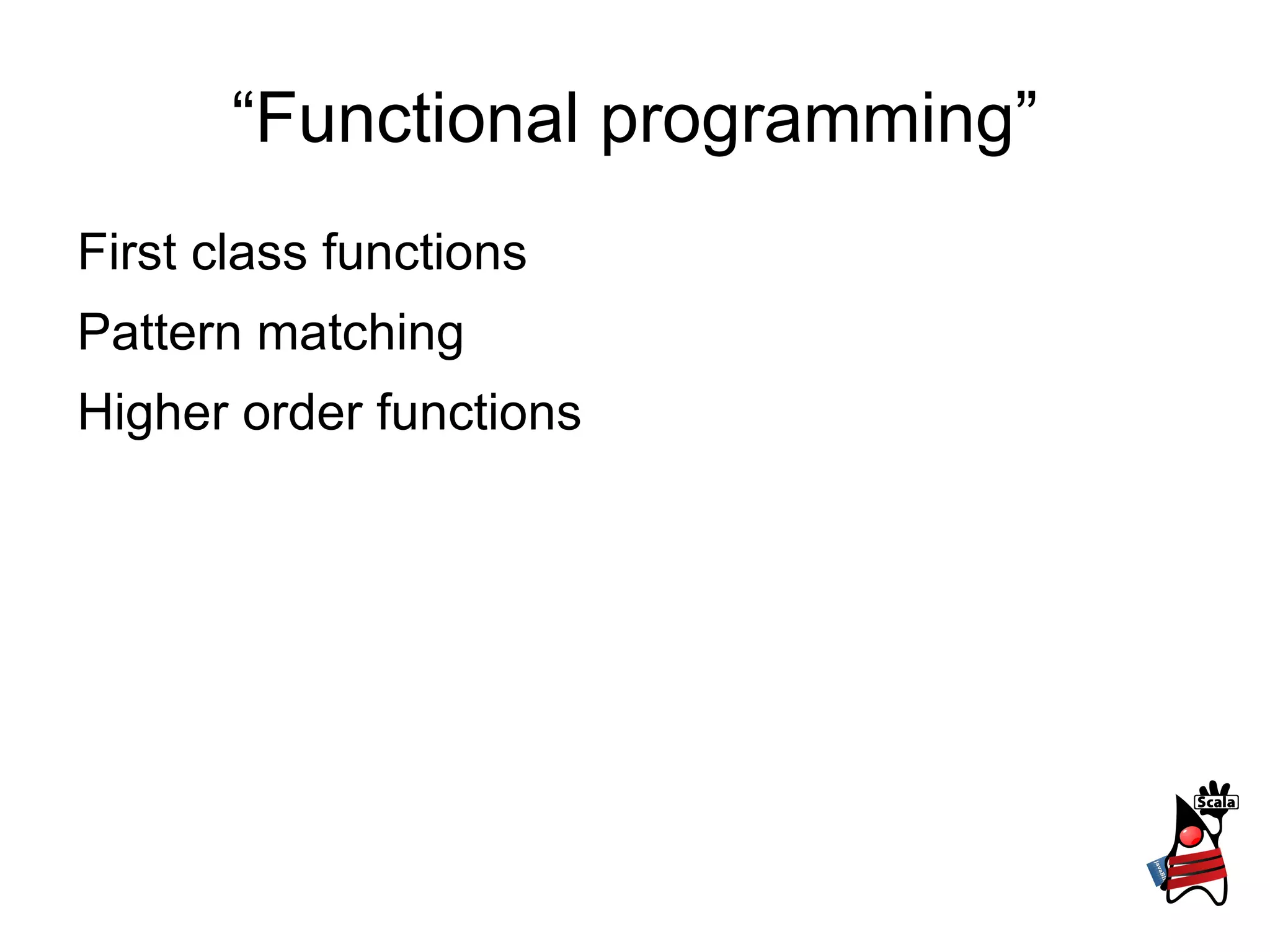
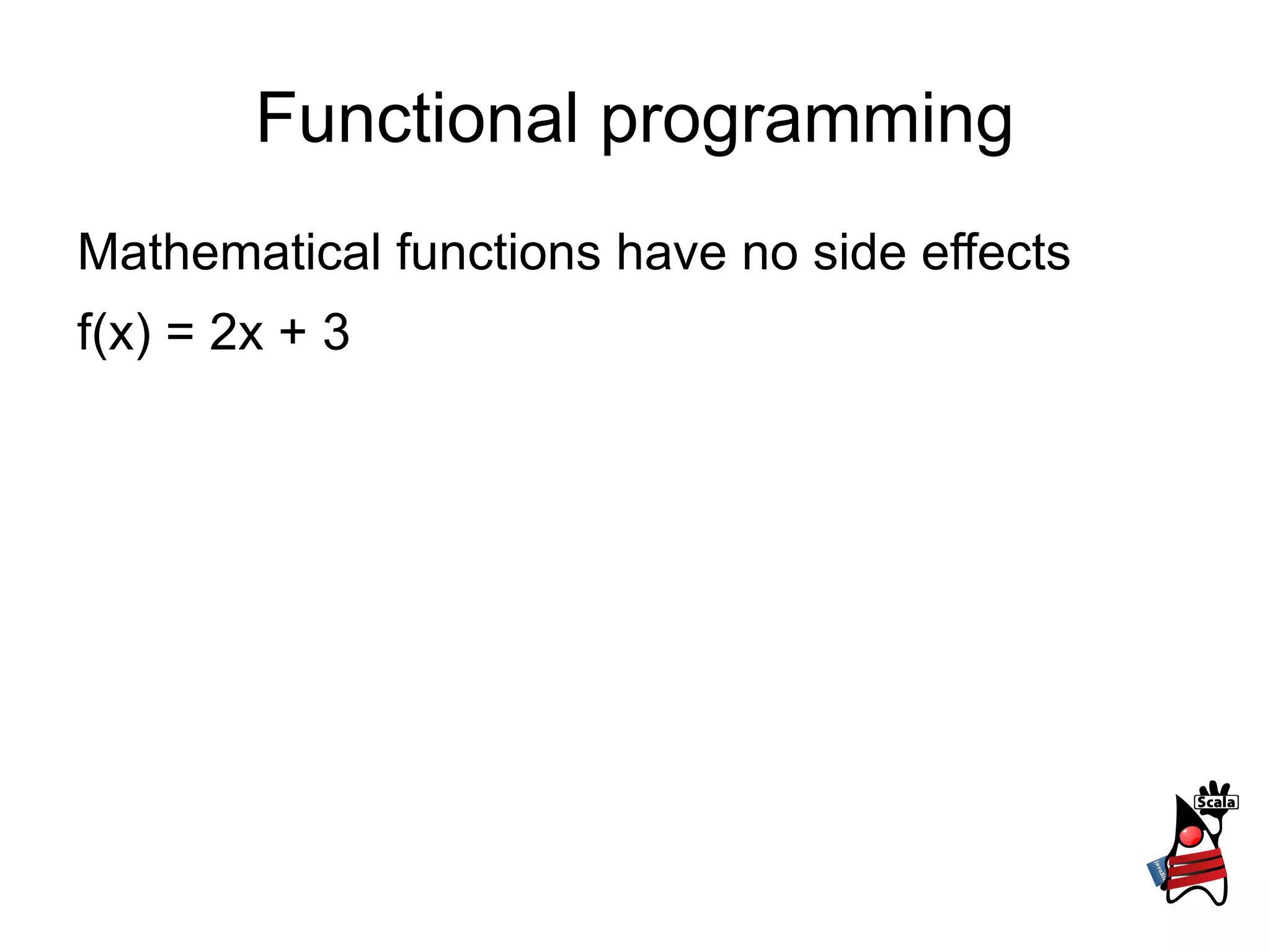
![scala.Ordered trait trait Ordered [ A ] { def compare ( that : A ): Int def < ( that : A ): Boolean = ( this compare that ) < 0 def > ( that : A ): Boolean = ( this compare that ) > 0 def <= ( that : A ): Boolean = ( this compare that ) <= 0 def >= ( that : A ): Boolean = ( this compare that ) >= 0 }](https://image.slidesharecdn.com/scala-introduction-100423050631-phpapp01/75/Scala-introduction-56-2048.jpg)
![The Ordered trait class Person ( val age : Int ) extends Ordered [ Person ] { def compare ( other : Person ) = this . age - other . age } val person1 = new Person (21) val person2 = new Person (31) person1 < person2 // true person1 <= person2 // true person1 >= person2 // false](https://image.slidesharecdn.com/scala-introduction-100423050631-phpapp01/75/Scala-introduction-57-2048.jpg)
